
Supporting Early-Career Scientists Expanding College Access and Affordability Sharing Immigrant Women’s Stories Redefining Philanthropy After revolutionizing animal welfare and challenging the textbook monopoly, what’s next for Michelson Philanthropies? 2022 IMPACT REPORT PUBLIC POLICY | EDUCATION & EQUITY MEDICAL RESEARCH | ANIMAL WELFARE
ABOUTAs a network of private operating foundations, Michelson Philanthropies creates transformative opportunities, makes impact investments, and fosters strategic partnerships that support vulnerable and underserved communities. Reflecting the passions of Dr. Gary K. Michelson and Alya Michelson, Michelson Philanthropies catalyzes sustainable, scalable, replicable solutions to a host of challenges facing society.
Michelson Medical Research Foundation, established in 1995, enables researchers to translate ideas into therapies that save lives. The foundation has given vital boosts to people and programs through programmatic support, research prizes, strategic investments, and other tools.
Michelson Found Animals Foundation was founded in 2005 with a mission of saving pets and enriching lives. With more than $100 million committed to animal welfare, MFA seeks to reduce shelter euthanasia in Los Angeles and across the country. It operates a range of initiatives including grants and partnerships that put resources in the hands of commu nities in need, research that promotes pet-friendly housing policies, and more. In the 16 years since its launch, MFA has helped more than 6 million pets and their families.
Michelson 20MM Foundation was founded in 2010 to improve educational access, efficacy, and equity for the nation’s 20 million postsecondary students. It has since expanded its mission to invest in tech entrepreneurs, changemakers, and policy to catalyze scalable innovations in the knowledge economy and accelerate progress toward a more just world.
Michelson Institute for Intellectual Property, launched in 2016, seeks to instill a widespread appreciation for, and understanding of, intellectual property fundamentals to empower students, faculty, inventors, and entrepreneurs.
Michelson Center for Public Policy, founded in 2021, advances innovative policy solutions that expand funding for medical research, increase access to education and careers for under served communities, promote understanding of intellectual property, and protect animals.
Leadership
Gary K. Michelson, M.D. Founder, President, and Co-chair
Alya Michelson Co-chair
Geoffrey L. Baum
Executive Director, Michelson Philanthropies, Michelson Center for Public Policy, and Michelson Medical Research Foundation
Phillip Kim
CEO, Michelson 20MM Foundation
Managing Director, Michelson Impact Ventures
Brett Yates
CEO, Michelson Found Animals Foundation CFO & COO, Michelson Philanthropies
Page 10
California Governor Gavin Newsom takes on the textbook “racket” with a $115 million initiative for Zero-Textbook-Cost degrees.

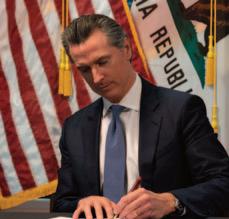
Page 12
Dr. Rong Ma of Emory University is one of three recipients of the 2021 Michelson Prizes: Next Generation grant.
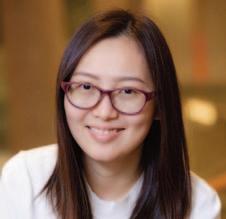
Page 18
Pet-inclusive policies in rental properties can attract and retain more residents, a study finds— and Congress agrees.
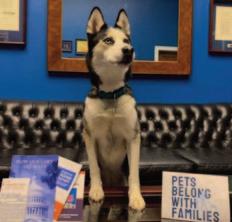
Page 28
Alya Michelson partners with Upwardly Global to support the professional development of immigrant women through the FirstGen Initiative.
CONTENTS
GEORGE BERNARD SHAW
“Make Life Less Unfair” 2
Microchipping a Milestone . . . . . . . . . . . . . . . . . . . . . . . . . . . . . . . . . . . 4
Public Policy 10
Medical Research 12
The Michelson Philanthropies Matrix . . . . . . . . . . . . . . . . . . . . . . . . . 16
Animal Welfare . . . . . . . . . . . . . . . . . . . . . . . . . . . . . . . . . . . . . . . . . . . 18
Education & Equity 22
Impact Investments . . . . . . . . . . . . . . . . . . . . . . . . . . . . . . . . . . . . . . . . 26
Sharing a Beautiful Journey . . . . . . . . . . . . . . . . . . . . . . . . . . . . . . . . 28
Intellectual Property 30
Looking Ahead 32
Michelson in the News . . . . . . . . . . . . . . . . . . . . . . . . Inside back cover
“You see things; and you say ‘Why?’ But I dream things that never were; and I say ‘Why not?’”
MICHELSON PHILANTHROPIES
2022 IMPACT REPORT2 A CONVERSATION WITH THE MICHELSONS Alya and Gary Michelson use philanthropy to advocate for those struggling to be seen and heard, from students and young scientists to immigrant women and the incarcerated
Make Life LESS UNFAIR”
Gary and Alya Michelson at their home in Los Angeles.
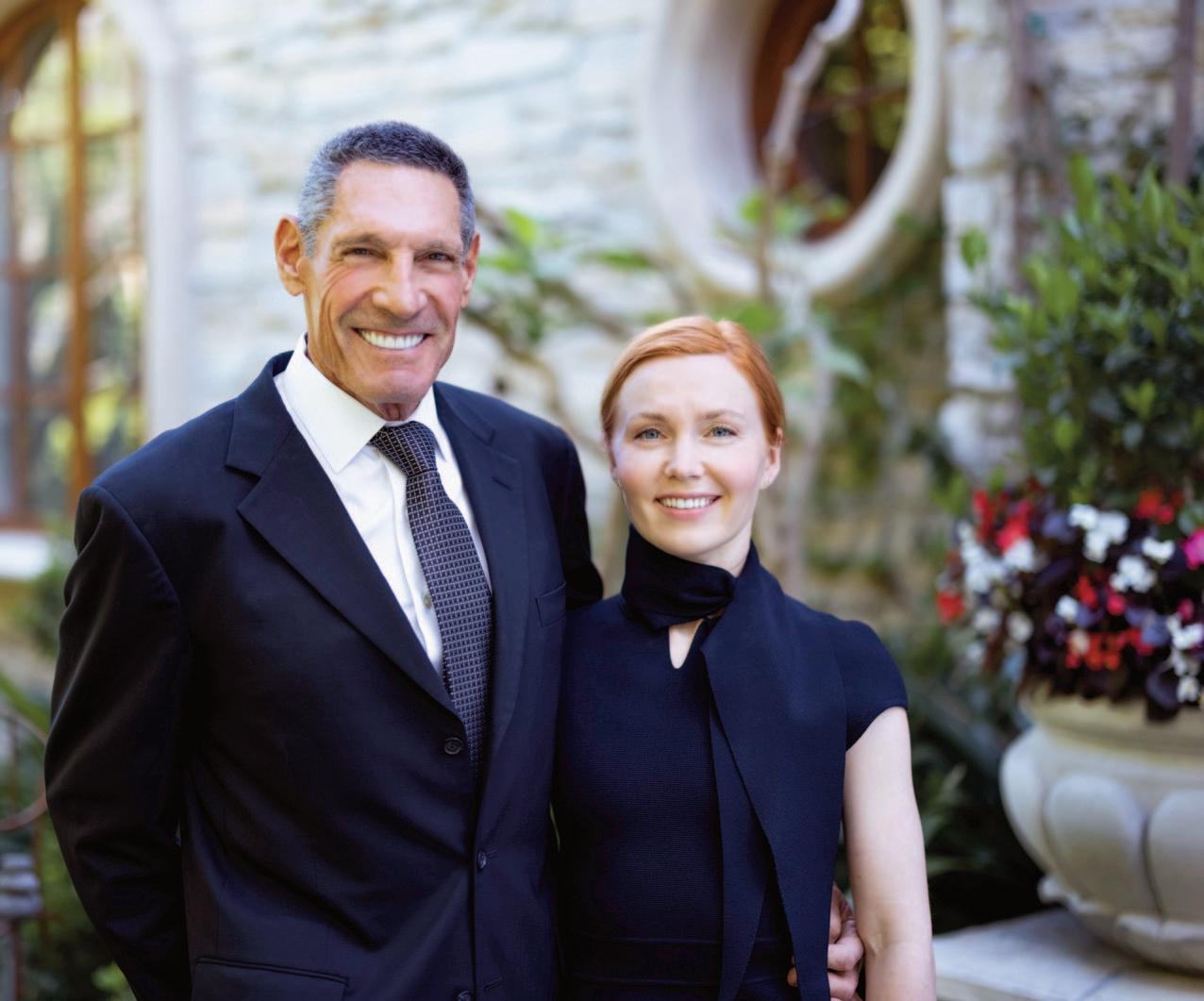
Dr. Gary K. Michelson speaks consistently about how he approaches philanthropy—with a series of principles that Michelson Philanthropies executive director Geoffrey L. Baum describes as “The Michelson Method.” In a recent conversation, Alya and Gary Michelson elaborate on these principles— including their overarching objective to “make life less unfair.”
Gary: I went to school for 25 years, literally, to learn how to do what I did. Physicians heal people. The world is badly in need of healing and helping. I don’t think life is fair. I don’t think the world is fair. And while we cannot be all things to all people, I think we’ve done a good job in selecting those causes where we felt like we could be effective, create the most leverage for our efforts, and make the world a little bit less unfair.
Alya and I try to be advocates in particular for the people who have been oppressed or were not being seen or heard— whether that's the community college students who don't have
“
food to eat while they are trying to get an education, or the prisoners who have been shut up and thrown away, or the animals in shelters who are being destroyed because nobody’s adopting them.
You’ve been an advocate for inventors and young scientific researchers. What’s your motivation?
Gary: I was a very vigorous utilizer of the U.S. Patent and Trademark Office. But for that, I would have had all my work simply taken from me, and that would not have been a good result. We have a wonderful intellectual property system in this country. Many people have within them the creativity to come up with new ideas and those ideas should be protected. I felt that was a debt that I should pay forward by giving more people some understanding of how the intellectual property system works so that they themselves can take advantage of it.
As for young scientific researchers, when I was an intern and a resident, they used to make you work 48 hours straight, give you 12 hours off, and then come back and work 48 hours straight again. That’s just abusive. The system took advantage of the fact that you were a captive employee, except that the National Labor Relations Board said you aren’t employees, you’re students, so you were getting hammered both ways. It wasn’t fair.
Young scientific researchers are in that same bind. The system is set up where they cannot get research money. So they become indentured servants in somebody else’s laboratory for six, seven, sometimes 10 years, before they can get to do their own research. That’s unfortunate because these are the brightest, best trained minds. They have the imagination, creativity, and courage to do things that are high-risk in science that would pay off the most. I'm a strong advocate for advancing their cause.
We’re also beginning to focus on first-generation immigrant women. Alya, can you speak to this?
Alya: FirstGen is uplifting the voices of those who are too often not seen or heard, literally and metaphorically. The idea sprang from my own struggles and victories but the story is much bigger than just my own experience. We plan to be bold and disruptive— as Michelson Philanthropies often is—in the story about immigration. Even though in the immigration field there are many philanthropic organizations focusing on this, barely anyone talks about female immigration, which is a completely separate and very important topic. We’re going to produce the research. We want to support immigrant female entrepreneurs and tell their stories. Hopefully our efforts will make a difference in the lives of many women—and not just in America. We want the discussion that we start to resonate around the world.
Dr. Michelson, I’ve often heard you say, “Invest in what makes your heart sing.” Can you elaborate?
Gary: When the Buddha was talking about the “right path,” one of the elements is “right work.” And when they asked him what right work was, he says, “It’s what you would want to do if nobody was paying you.” If you’re going to invest your life energy into something, make it something that’s really meaningful to you. That’s what we try to do.
Another principle you articulate is “Be catalytic, not consumptive.”
Gary: Some foundations have more money than they know what to do with and they’re forced by the tax code to dispense that money. They don’t care if the money they dispense is essentially consumed in the process. What we try to do is we try to get the most impact for the money we invest and cause meaningful and lasting change. If you look at what we’re doing with HBCUs [Historically Black Colleges and Universities], somebody could say, “Isn’t that consumptive? You’re giving them money, the money is spent, and everything is done?” No, it's actually the opposite, because what we’re doing with that money is educating another generation of people. That’s what’s going to carry this forward. We have tried to not just invest catalytically, we’ve tried to be disruptive. When I started the Found Animals Foundation, Los Angeles was killing more dogs and cats than any municipality in the country—half the dogs and 90 percent of the cats. We have so disrupted that system by putting in extensive spay-and-neuter services and doing other things that now there are fewer puppies in municipal animal shelters.
Michelson Philanthropies comprises operating foundations, not just grant makers. We carry out a broad range of programs and are doing much of the frontline work.
Alya: The thing that unites everything is to go to the areas where no one wants to go. We take the topic that doesn't look fancy at all, and we groom it, we treat it, we address it the way people understand it, and we make real changes. This is a great way to make life a little bit more fair.
Lastly, you often say, “There are more pies than you have thumbs.” What do you want people to understand when they come knocking on your door with a very compelling philanthropic opportunity?
Gary: There really is no limit to legitimately compelling needs in the world. We can’t be all things to all people, so we try to do something a little bit different. We try to be the tip of the spear and lead meaningful change in things that are very substantial. You can only do so many things. And we’re doing a lot.
“We try to be the tip of the spear and lead meaningful change.”
2022 IMPACT REPORT 3 MICHELSON PHILANTHROPIES
MILESTONE Microchipping a
After revolutionizing animal welfare and challenging the textbook monopoly, Michelson Philanthropies continues to redefine the impact philanthropy can make on people, pets, and public policy
 By DIANE KRIEGER
By DIANE KRIEGER
Dr. Gary K. Michelson with U.S. Congressman Tony Cárdenas at the Michelson Found Animals Gala.
2022 IMPACT REPORT4 COVER STORY
GROWING UP IN A HOME that he likens to a “combat zone,” rocked by violence and domestic strife, Dr. Gary K. Michelson credits his pet boxer, Chase, with making his childhood bearable.
“Chase was probably what kept me sane—the only warm, living thing there that wasn’t dangerous,” says the orthopedic spinal surgeon and prolific medical inventor.

Michelson left his Philadelphia home at 17, putting himself through college and medical school. He never betrayed the memory of Chase, risking expulsion from Hahnemann Medical College (now part of Drexel University) when he refused to participate in the “dog lab,” a course requiring students to remove a different organ each week from a healthy dog.
Decades later, after a patent acquisition settlement made him a billionaire overnight, Michelson dedicated himself to philan thropy, putting animal welfare at the top of his giving agenda.
Why does Michelson care so much about pets? “I’m just paying off a debt to Chase,” he says.
The humble Michelson naturally downplays the vision that led to the creation of Michelson Found Animals Foundation (MFA). The Los Angeles-based nonprofit embodies Michelson’s philanthropic philosophy of investing in efforts to impact catalytic change. MFA supports a range of social enterprises, impact investments, strategic partnerships, and thought-leadership initiatives devoted to the idea that people and pets belong together.
When he launched MFA, Michelson says he hoped it would one day “essentially put itself out of business.” Indeed.
In 2021, having successfully fostered a microchip revolution in the pet care industry, MFA sold its microchip registry operations to Pethealth, a leading provider of pet insurance, lost pet recovery, and shelter management software in the United States, Canada, and the United Kingdom.
“The success of the Found Animals Registry inspired others in the industry to reduce or eliminate costs for pets and their families,” says MFA CEO Brett Yates. “Today, free microchip registry services are standard, ensuring that as many pets as possible are registered to their owners and can be returned home. With Pethealth, we have found a committed new owner for the registry who will bring to life its next chapter in serving people and pets.”
As it turns 17, MFA has evolved into a multipronged opera tion with a $15 million annual budget and a mission that has evolved well beyond fixing structural problems in the microchip industry. It now combats animal overpopulation and advocates for animals in underserved communities. It is part of the Michel son Philanthropies network of foundations that strive to go beyond conventional wisdom as they promote access and equity in education at the Michelson 20MM Foundation, support vaccine research and young scientific researchers through the Michelson Prizes, lobby to end required animal testing through the Michelson Center for Public Policy, and much more.
“Gary Michelson revolutionized the microchip industry and changed the definition of what a pet shop can be and what breeders can and cannot do,” says Phillip Kim, CEO of Michelson 20MM Foundation. “We are now investing in companies that are not only revolutionizing the pet space but also startups that will change the education sector, close the digital divide, and teach students at HBCUs about IP.”
Case in point: the Pet-Inclusive Housing Initiative (PIHI), a partnership between MFA and the Human Animal Bond Research Institute. In 2021, PIHI released a data-rich report that detailed how implementing pet-inclusive housing policies benefits both renters and property owners/operators (page 18)
A bipartisan group of congressional leaders cited the report’s research when introducing the Pets Belong With Families Act (HR 5828) in 2021. The bill will allow families to keep their beloved pets in the home by prohibiting vague and sweeping restrictions against dogs based on breed or size. “We’re now focusing on the role of companion animals in enriching human
BRETT YATES
Michelson Found Animals CEO
lives and rethinking the pet bans in lease agreements and homeless shelters,” Yates adds. “We believe in a broad definition of inclusivity.”
Another MFA program, Better Neighbor Project (BNP), launched in 2020 to serve the pet needs of underserved communities (page 20). Built on the belief that everyone, regardless of socioeconomic status, deserves the love and companionship of a pet, MFA partners with human service agencies to distribute pet food and essential supplies through established food pantries and pop-up pet wellness events where residents can receive free pet food, microchips, vaccinations, grooming, hygiene, and veterinary care for their companion animals. BNP has served more than 50,000 pets and their families since its launch.
Inspiration Out of Devastation
The catalyst for the creation of Michelson Found Animals was Hurricane Katrina. When the Category 5 cyclone smashed into the Gulf Coast in August 2005, emergency evacuation orders sent 1.2 million residents scrambling for temporary shelter. Tens
“The success of the Found Animals Registry inspired others in the industry to reduce or eliminate costs for pets and their families.”
2022 IMPACT REPORT 5 MICHELSON PHILANTHROPIES
300,000
pets reunited with their families
MFA’s Found Pet Alert System helped reunite Steven and Debra Mejeur of Kalamazoo, Michigan, below, with their service dog, Lola, three years after her disappearance.
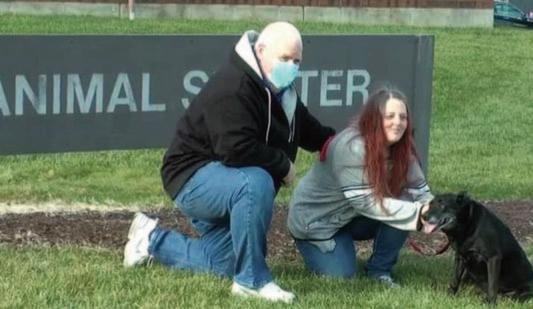
of thousands of pets were left behind in the chaos. News channels broadcast heartrending coverage of dogs stranded on rooftops and panicked animals swept up in floodwaters.
Those images were a gut punch to Michelson. In December 2005, he established Found Animals Foundation (later MFA) with the goal of reconnecting lost pets with their owners through existing microchipping technology. It shouldn’t have been hard, but no microchip standard existed, nor was there a central registry. The industry’s for-profit model also made the process unnecessarily expensive.
Michelson began by donating 200,000 microchips to Los Angeles-area animal shelters. He bulk-ordered another 4.5 million chips at $5 apiece (well below the market rate) and funneled them to rescues nationwide, driving down chip prices to a fraction of their previous cost. MFA started selling universal scanners at below-market prices too.
Michelson threw himself into the microchipping space not only as a philanthropist but as an inventor. In 2011, he developed and launched the first nationwide free microchip registry. Three years later, in response to the problem of chip migration in animals, he designed and patented a subcutaneous device that stays right where it is implanted.
Over the last decade, the Michelson Found Animals Registry (found.org) has reunited nearly 300,000 pets with their owners.
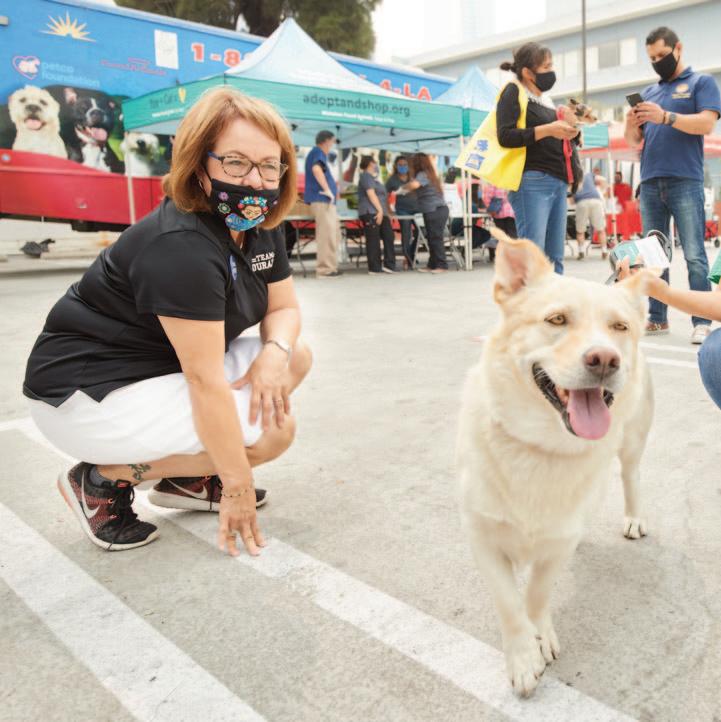
A recent example: the miraculous return of Lola, a black Labrador service dog, to Debra and Steven Mejeur of Kalamazoo, Michigan. Lola had escaped from a fenced backyard while on a family trip to northeastern Illinois in 2017. Believed to have lived in the woods for three years, she turned up 15 miles from where she disappeared.
After scanning her, DuPage County Animal Services officials used MFA’s Found Pet Alert system to contact the Mejeurs. “I started crying because it was just unreal,” said Debra Mejeur after Lola’s return.
With support from the Michelson Center for Public Policy, California’s microchip mandate was signed into law by Gov. Gavin Newsom in 2020. The legislation, which requires rescue animals to receive microchips before they can be adopted or reunited with their original owner, came after years of advocacy by Michelson and influential animal rights activist Judie Mancuso and her organization, Social Compassion in Legislation.
A Global Social Enterprise
Adopt & Shop is one of the many innovative ventures that have sprouted out of Michelson’s work. The nonprofit pet store doubled as a hub for adoptions, doggy daycare, microchipping, grooming, low-cost dental clinics, and vaccinations. After facilitating more than 17,000 adoptions, Adopt & Shop closed its doors in 2021.
Michelson’s philanthropic work goes back decades, begin ning in 1995 with the creation of the Michelson Medical Research Foundation. Today, its $200 million-plus endowment supports high-risk, high-reward concepts and technologies to accelerate solutions to global health challenges. In 2014, the Michelsons gave a transformational gift of $50 million to the University of Southern California to create a convergent bioscience center to fast-track life-saving devices and therapeutics.
In 2010, he established the Michelson 20MM Foundation (short for Twenty Million Minds). That organization dismantles financial
2022 IMPACT REPORT6 MICROCHIPPING A MILESTONE
In September 2020, MFA partnered with state Sen. Maria Elena Durazo (pictured, left) to host a Pet Pantry and Wellness Event as part of MFA’s Better Neighbor Project.
barriers to education by, for example, driving down the cost of college textbooks. Michelson Institute for Intellectual Property was launched as part of Michelson 20MM in 2016 to promote patentrelated education for student-inventors and young entrepreneurs.
Recognizing that systemic change often requires govern ment action, Michelson launched the Michelson Center for Public Policy (MCPP) in 2010 as the Found Animal Legislative Fund. Today it pursues an ambitious agenda in Washington, D.C., Sacramento, and Los Angeles.
5 Million Microchips … and More
2013
MFA launches first surrender prevention program with Downtown Dog Rescue in South L.A.
2014
Inaugural Saving Pets Challenge raises more than $1 million in 32 days.
2015
Adopt & Shop Culver City reaches 1,000 adoptions in just its second year.
2016
ALYA MICHELSON
“Dr. Michelson identifies major problems that need to be solved and relentlessly pursues them,” says Geoffrey L. Baum, executive director of Michelson Philanthropies, the parent organization of this network of private foundations.
What do all Michelson’s foundations and advocacy groups have in common? “If there’s something that binds our efforts together, it’s this idea of trying to reach out to make life a little bit less unfair for those who have been disadvantaged,” Michelson says. He and his wife, Alya, signed the Giving Pledge in 2016, committing to give away at least half their wealth over the course of their lifetimes.
Among their philanthropic activities, animal welfare remains a top priority for the Michelson family—and a personal one. The couple and their three young children share their Los Angeles

2005
Michelson Found Animals Foundation is established as the Found Animals Foundation Inc.
2006
Microchip donation program begins.
2007
First spay/neuter grant awarded to FixNation.
2008
Michelson Prize & Grants Program is announced.
2009
Live streaming webcam of kittens nets 1 million views.
2010
More than 50,000 microchips donated to local partners; beta-testing registry begins.
2011
First retail adoption location opens in Lakewood, with 585 cats adopted in its first year of operation.
2012
Southern California spay/ neuter grantees perform more than 45,000 surgeries.
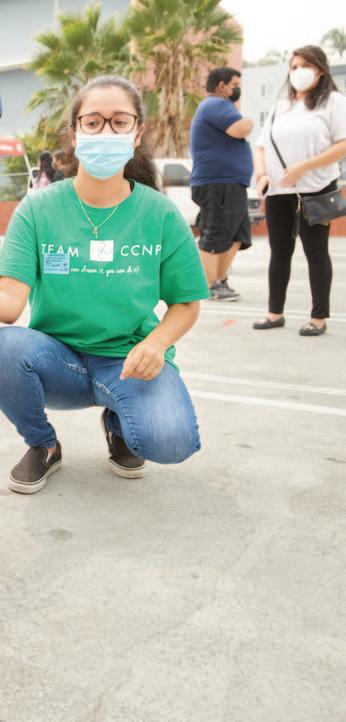
Rescued Pets Movement of Houston raises $146,000 to save 2,665 dogs and cats from death row— placing first in MFA’s Saving Pets Challenge.
2017
The Michelson Prize & Grants Program surpasses $15 million in funding toward finding a singledose nonsurgical sterilant for cats and dogs.
2018
Leap Venture Studio & Academy launches.
2019
MFA partners with NBCUniversal for the Fund the Shelter challenge.
2020
MFA launches Better Neighbor Project, which partners with human service organizations to support underserved communities and their pets.
2021
Pethealth Inc., a leading provider of pet insurance and lost pet recovery, acquires MFA’s microchip registry operations.
2022 IMPACT REPORT 7 MICHELSON PHILANTHROPIES
“We try to be involved in areas where nobody else wants to go—where it’s not prestigious or popular.”
home with Blue, their adopted pit bull. Over the years, they have sheltered many rescue dogs, including Gracie, a white whippet found abandoned in a chicken-wire cage, and Honey, a pit bull left to die in the street.
A former journalist in her native Russia, Alya Michelson is a full partner in Michelson Philanthropies’ activities. “We try to be involved in areas where nobody else wants to go—where it’s not prestigious or popular,” she says. “Sometimes I have doubts: Am I doing enough? But as I always say to our kids: ‘Michelsons can do anything.’ I look at these wonderful programs, all this effort, and I’m so proud of our team.”
Catalysts for Change
In 2003, animal shelters in Los Angeles euthanized 30,000 animals a year. Unchecked breeding drove the staggering numbers of unwanted pets in the city. To fix the problem, Michelson created a network of low-cost spay and neuter clinics, and then got local governments involved in supporting them. Through MFA’s Lifesaving Grants program, more than $11 million in seed funding jumpstarted the Spay Neuter Partnership of Los Angeles, FixNation, and Spay4LA..
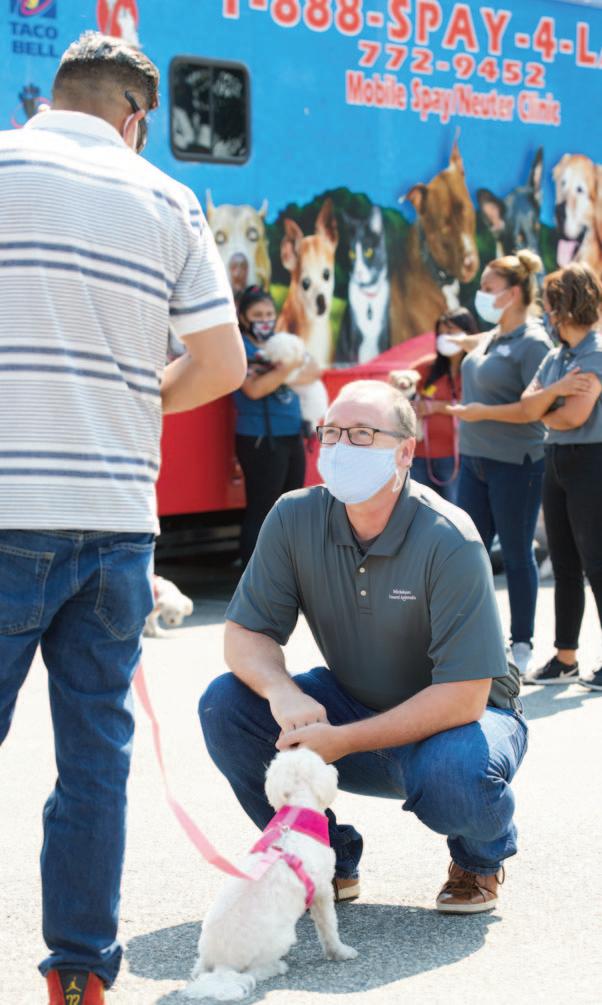
Thanks to these groups, the Live Release Rate for dogs at municipal shelters is currently above 90% in Los Angeles. And after years of legal challenges, a citywide cat trap/neuter/return program was adopted by the Los Angeles City Council in 2020.
MFA also has distributed more than $1 million in cash prizes through its Fundraising Challenges and helped 600 animal welfare agencies raise $9.2 million more. To collect, grantees must match MFA’s support dollar for dollar.
“Rather than have a dollar be consumed, we want to leverage that dollar philanthropically,” Michelson explains. “We’re reaching beyond the status quo to be change agents and fundamentally alter the landscape.”
Three core principles drive Michelson’s philanthropy: catalytic grant-making, disrupting broken systems, and seeing government as a lever. MFA’s partnership with the Stray Cat Alliance and the City of Long Beach exemplifies all three principles in action. The effort has successfully sterilized, vaccinated, and returned 5,000 healthy feral cats to their neighborhoods.
Perhaps MFA’s most ambitious undertaking is the search for a low-cost chemical alternative to invasive spay and neuter surgery. Through the Michelson Prize & Grants in Reproductive

$9.2 million raised by 600 animal welfare agencies with the help of Michelson Found Animals
Brett Yates, kneeling, was named CEO of MFA in 2020. He also is CFO and COO of Michelson Philanthropies.
MFA’s partnership with the Stray Cat Alliance and the City of Long Beach has sterilized, vaccinated, and returned 5,000 healthy feral cats to their neighborhoods.
2022 IMPACT REPORT8 MICROCHIPPING A MILESTONE
Biology, the foundation has set aside $75 million to incentivize the discovery of a single-injection nonsurgical sterilant in dogs and cats—with a $25 million prize for the first team to achieve it.
Since 2008, Michelson Prize & Grants has invested more than $19 million to more than 40 research projects. MFA began its own direct research program in 2016, collaborating with scientists at the University of Florida and others across the United States.
The gene therapy strategy MFA is pursuing builds on techniques and insights that led to the COVID-19 vaccines. Once an injectable sterilant is developed, MFA will guide the drug through clinical trials and regulatory approval, manufacturing, marketing, and distribution, says chief scientific officer Thomas Conlon.
Providing Shelter for Companion Pets
While Michelson’s philanthropy is highly strategic, serendipity also plays a role. A decade ago, while waiting at a traffic light near a freeway entrance, Michelson noticed a homeless man with two pit bulls. The man was emaciated, but the dogs looked healthy and well-fed. Curious, Michelson pulled over and struck up a conversation. The dogs, he discovered, were like children to this person: Feeding them was more important than providing for himself. Sadly, bad policy was forcing him to make that choice daily, because health regulations and municipal codes ban pets from soup kitchens and homeless shelters.
Through its partner ship with MFA, YMCA of Metropolitan Los Angeles expanded its services to include ac cess to veterinarians, grooming, referrals to spay and neutering services, and pet food.
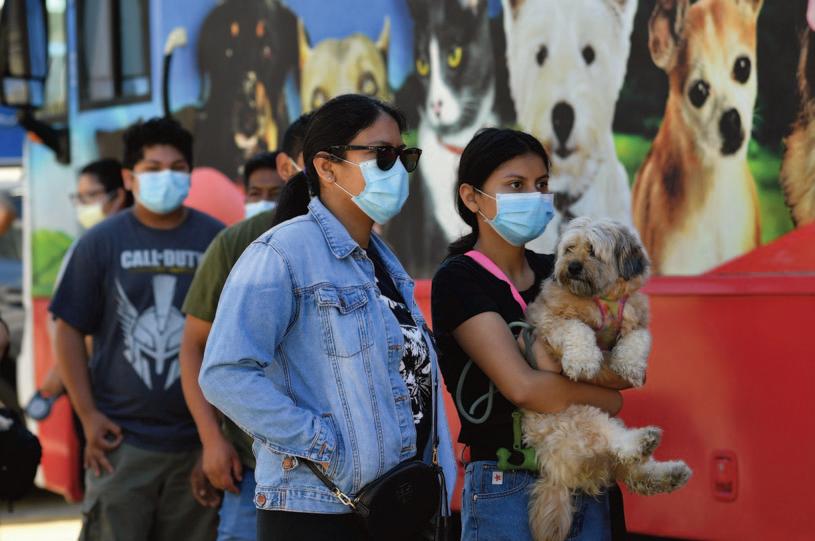
Rainbow Services was one of the first Los Angeles County domestic violence shelters to accept pets, and others have followed. The program’s success has allowed Rainbow Services to build a second pet-friendly room at its emergency shelter and make pet-inclusive renovations to three apartments in its transitional housing facility. Today, one in 10 domestic violence shelters welcomes pets.
One Giant Leap for Pet Care
By some estimates, as many as 10 percent of people living on the street have pets. Yet municipalities force these vulnerable Angelenos to abandon their companions in exchange for a full stomach or a warm bed.
A similar dilemma exists for victims of domestic violence. According to Purina’s Purple Leash Project, nearly half of domestic violence victims choose to stay in abusive situations rather than leave a pet behind.
In 2012, Michelson met Marci Fukuroda, an attorney with Rainbow Services in San Pedro. She explained how her agency wanted to welcome pets at its emergency shelter but lacked funding and the know-how to implement a program. MFA stepped up with seed money to create a pet-friendly room, build an outdoor dog run, and fund pet supplies and vaccinations. The foundation also provided training to prepare Rainbow Services staff and residents for communal life with animals.
Despite the high visibility of companies like Wag! and Chewy, e-commerce in the pet industry suffers from underinvestment. In 2018, MFA spearheaded Leap Venture Studio, the first petindustry accelerator, in partnership with Kinship, a division of Mars Petcare, and R/GA Ventures. Collectively, the 33 portfolio companies receiving Leap investment have raised more than $50 million from leading venture capital groups.
Leap startups range from PetPlate, a subscription-based ser vice for all-natural pet food, to PetHospice, a provider of end-oflife palliative care services for pets. Six new portfolio companies began the 12-week Leap accelerator program in February 2022. A sister program called Leap Academy regularly hosts boot camps, webinars, and pitch competitions for emerging pet-care entrepreneurs.
“We are four years into the program now, and all our companies are not only still in business but flourishing,” Yates says. “I am also proud that we have achieved a dramatically higher rate of diverse founders in our accelerator program than is the industry norm.”
2022 IMPACT REPORT 9 MICHELSON PHILANTHROPIES
New State Budget Removes a Barrier to College for Californians
The Zero-Textbook-Cost (ZTC) Degree Program began in 2016 as a pilot program with $5 million in seed funding from Proposition 98, which determines community college and K-12 funding. ZTC degrees are associate degrees or career technical education certificates composed entirely of courses that eliminate additional textbook and material fees through the use of high-quality, no-cost learning content with an emphasis on open educational resources (OER). The program helps students finish their degree programs without the burden of paying for costly textbooks and other instructional materials.
The move came after a coalition of educators, students, and policy experts called on legislators to fully fund the program, noting that the cost of textbooks should not be a barrier to success and completion of degrees for California’s nearly 2 million community college students. The Michelson Center for Public Policy was instrumental in highlighting the importance of this program as the state considered whether to implement it again this year.
With seven in 10 California community college students experiencing food insecurity, housing insecurity, or homelessness, the ZTC degree program “has the opportunity to be truly transformative for students across the state, particularly our most vulnerable students who are still paying over $700 per year on learning materials,” says Phillip Kim, CEO of the Michelson 20MM Foundation.
In a historic win for community college students, on July 27, 2021, Governor Gavin Newsom signed AB 132, the 2021-22 state budget, which allocates $115 million to make textbooks and other instructional materials more affordable if not free. Newsom has called the $3.2 billion textbook industry a “racket,” adding, “We in California have an obligation to disrupt that entire system nationwide.”
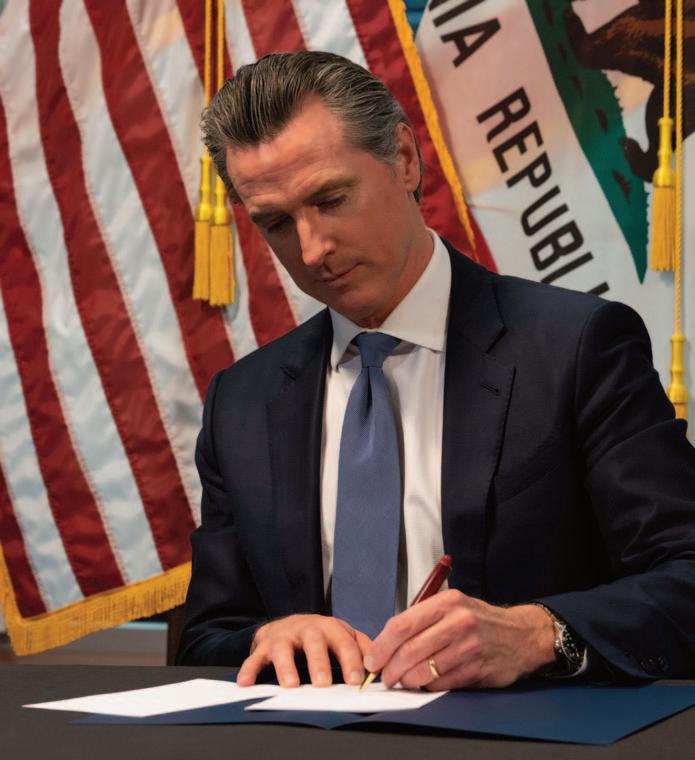
Stephen Kodur, former president of the Student Senate for California Community Colleges, says the $115 million earmarked for ZTC in the governor’s budget would go a long way to help students finish their education. “If more classes have ZTC offerings, then more students will have an opportunity to succeed.”
“In a system where textbooks cost more than tuition at a time when students are struggling with
 California
California
Nearly 2 million community college students in California spend more than $700 on learning materials per year
2022 IMPACT REPORT10
PUBLIC POLICY
Governor Gavin Newsom, above, signs a bill into law.
Governor Newsom allocates $115 million to reduce exorbitant textbook costs
food and housing insecurity, they can ill afford to be taken advantage of,” Dr. Gary K. Michelson says. “We must help the next generation gain better access to the instruction and materials they need to succeed, rather than adding to their financial burden through hidden textbook charges.”
In 2022, the Michelson Center for Public Policy will work to make sure the $115 million is shepherded responsibly and optimized to reach as many students as possible, and will continue to push for policy outcomes that uplift underserved or neglected populations, such as incarcerated students.
California Takes Action to Expand Protections for Incarcerated Students
Social justice and education organizations are applauding a new California law that will combat recidivism by expanding access to college instruction for incarcerated individuals. Signed into law in October 2021, Senate Bill 416 makes California the first state in the nation to provide protections to incarcerated students as they seek to attain a postsecondary education.
“Two-thirds of those who leave prison are back within three years, often due to a lack of education or training opportunities,” says Dr. Gary K. Michelson, founder and co-chair of Michelson Philanthropies and the Michelson Center for Public Policy, which co-sponsored the bill. “We are deeply grateful to our elected leaders, who recognize how critical education is to empower these individuals to uplift themselves and their families post-incarceration.”
MCPP and other stakeholders succeeded in building broad bipartisan support for the legislation, which makes changes to the California Penal Code to ensure that college programs offered to incarcera ted students are provided by accredited nonprofit colleges or universities. “Quality, accessible education reduces poverty and recidivism,” says Romarilyn Ralston, chair of the Project Rebound Consortium Policy and Advocacy Committee. “This landmark legislation sends a powerful message that California is committed to educational equity and justice for all.”
“Increasing educational opportuni ties and providing quality instruction for incarcerated indivi duals is vital to achieving our goals of supporting rehabilitation and reducing recidivism,” says California State Senator Ben Hueso. “We know education can lead to social and economic mobility. Formerly incarcerated individuals with low educational levels often do not have the financial resources or social support systems upon their release from prison, making them less able to reintegrate into society and more vulnerable to committing crimes that land them back in prison. This law is a simple yet critical step to reduce crime and will lead to long-term benefits throughout the state and nation.”
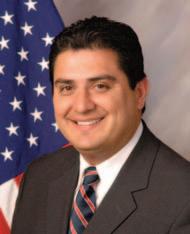
Project Rebound programs at six California State University campuses received a grant to develop a toolkit for finding affordable housing for formerly incarcerated students.
From left, Chicana/o studies professor Martha Escobar, executive director of CSUN’s Project Rebound; student intern Demar Traylor; Jason Bell, director of programs for the CSU Project Rebound Consortium; Project Rebound coordinator Lily Gonzalez; and student intern Stanley Thermidor.

“This law is a simple yet critical step to reduce crime and will lead to long-term benefits throughout the state and nation.”
CALIFORNIA STATE SENATOR BEN HUESO
2022 IMPACT REPORT 11 MICHELSON PHILANTHROPIES
Michelson Prizes Push New Frontiers in Human Immunology
Awards honor disruptive thinkers and doers who dare to change the trajectory of the world
Michelson Medical Research Foundation and the Human Vaccines Project continued to advocate for and support young scientific researchers by awarding Michelson Prizes: Next Generation grants to Dr. Camila Consiglio, postdoctoral researcher at Karolinska Institutet in Solna, Sweden;
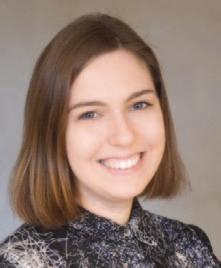
Dr. Rong Ma, postdoctoral fellow at Emory University in Atlanta; and Dr. Nicholas Wu, assistant professor of biochemistry at the

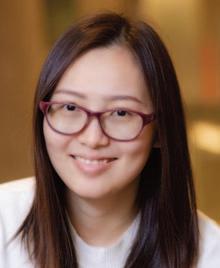
Meet the Next Generation of Innovative Immunologists
University of Illinois.
The $150,000 research grants are awarded each year to early-career innovators who apply disruptive research concepts to advance human immunology, vaccine discovery, and immunotherapy across major global diseases.
“We need disruptive thinkers and doers who dare to change the trajectory of the world for the better,” says Dr. Gary K. Michelson, founder and co-chair of Michelson Medical Research Foundation. “Yet promising young researchers too often lack the opportunities, resources, and freedom to explore their bold ideas. The pandemic has created additional roadblocks for many of them. With the Michelson Prizes, we aim to provide earlycareer investigators a vital boost for their forward-thinking approaches.”
The winners of the 2021 Michelson Prizes were selected through a rigorous global competition in which their research proposals were reviewed by a committee of internationally recognized scientists.
The 2021 Michelson Prize laureates received their awards in a ceremony in March 2022. The ceremony was preceded
Camila Consiglio’s research provides a novel approach to understand ing differences in human immune responses between sexes by studying a unique cohort of people: individuals undergoing sex-reassignment therapy with sex hormone treat ment. Her research project, “Investigating the effects of testosterone on the human immune system,” will offer insights on the sex differences in immune responses and help optimize vaccine strategies and immunomodulatory therapies.
Rong Ma’s research is based on novel mechano technology that measures and interprets the mechani cal forces involved in the human immune system. Her proposal, “Harnessing receptor mechanics as a marker for immunogenicity to isolate and identify potent T cell receptors and recognized antigens,” provides a pathway for using these mechanics to identify and predict immune responses, which could greatly advance vaccine development and person alized cancer treatment.
by the Human Vaccines Project Global COVID Lab Meeting, which brought together the global scientific community to discuss the latest groundbreaking data on COVID-19 vaccines.
“It is inspiring to see their passion for innovation and their courage to think out of the box,” says Dr. Wayne Koff, CEO and president of the Human Vaccines Project.
Nicholas Wu’s research attempts to interpret the complexity of the human antibody repertoire by establishing a sequencebased approach for epitope prediction. His research project, “Systematic identification of antibody sequence signatures for epitope prediction,” sits at the convergence of high-throughput biology, molecular biology, structural immunology, and bioinfor matics and has the potential to shift the paradigm of antibody discovery and characterization.
“I look forward to their future breakthrough discoveries and how their research can contribute to the Human Vaccines Project’s mission of developing the first AI model of human immunity.”
Applications for next year’s Michelson Prizes for Human Immunology and Vaccine Research opened on April 1, 2022. For more information on how to apply, visit humanvaccinesproject.org.
2022 IMPACT REPORT12
$150,000 is awarded annually to early-career innovators MEDICAL RESEARCH
Dr. Paul Bastard Receives Inaugural Michelson Philanthropies & Science Prize for Immunology
When the COVID-19 pandemic began in 2020, no one knew why some people developed severe COVID—often leading to death—while others of the same age and comorbidities did not. Looking for answers, Dr. Paul Bastard, chief resident in the Necker Hospital for Sick Children’s Department of Pediatrics in Paris, and his lab team created a consortium called the COVID Human Genetic Effort (CHGE) to recruit and test as many patients as possible with either severe or very mild disease symptoms and then to compare both the gene tic mutations that would affect genes important in the immune response and immunity overall
Science, founded in 1880 by Thomas Edison, has the largest circulation of any peer-reviewed general science journal in the world, with an estimated total readership of more than 400,000.
Dr. Bastard, who conducts his research in Dr. Jean-Laurent Casanova’s laboratory at the Imagine Institute in Paris, recalled riding his bike around the City of Lights’ empty streets in the early weeks of the pandemic to collect blood samples from COVID patients at hospitals. All delivery services were shut down, so he received a special authorization to collect the samples.

In February 2022, Dr. Bastard was awarded the inaugural Michelson Philanthropies & Science Prize for Immunology, which comes with a $30,000 award. His prize-winning paper appears in the February 25,
2022, issue of Science magazine and looks at mutations in genes involved in the type I interferon (IFN) system (a potent antiviral defense), as well as autoantibodies (auto-Abs) that block these type I IFNs, and whether these mutations or autoAbs make people more susceptible to COVID-related death.
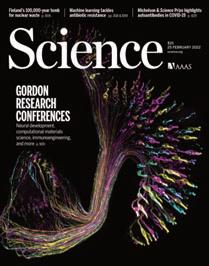
Dr. Bastard hopes winning the Michelson Philanthropies & Science Prize will bring recognition to his work and to the field. “Putting a name like this prize on our work is huge,” he says. “I hope it’s going to raise awareness, because some still do not believe that people can suffer from a severe infectious disease because of a pre-existing immune deficiency. … I hope that the more recognition we get, the more our findings and basic research will get to the patients.”
His advice for future researchers who are considering applying for the prize? “If you have an idea, pursue it,” Dr. Bastard says. “Ideas might not always work out, but believing in them and testing them experimentally, from the hypothesis you make, is the best way to go all the way through writing a prize application.”
Dr. Scott Biering and Dr. Lisa Wagar Honored as Michelson/Science Prize Finalists
Dr. Scott Biering of UC Berkeley and Dr. Lisa Wagar of UC Irvine each received $10,000 as finalists for the Michelson Philanthropies & Science Prize for Immunology.
Dr. Biering is a molecular virologist and immunologist with a passion for understanding virus-host interactions. His Michelson/ Science Prize essay examines a conserved flavivirus protein that holds potential as a target for versatile vaccines and therapies.
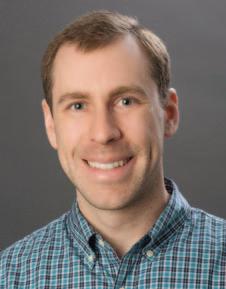
Dr. Wagar completed her Ph.D. at the University of Toronto and came to UC Irvine in 2020, where her research focuses on translational human immunology. Her Michelson/Science Prize essay is about deciphering immune responses to viruses and vaccines using human tonsil organoids.
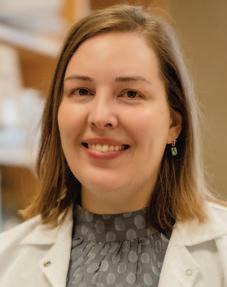 Dr. Paul Bastard outside the Imagine Institute in Paris.
Dr. Paul Bastard outside the Imagine Institute in Paris.
2022 IMPACT REPORT 13 MICHELSON PHILANTHROPIES
A
$55 Million Hub for Innovation in Science and Technology
John O’Brien Nanofabrication Laboratory opens its doors at USC Michelson Center for Convergent Bioscience

zation (surface, optical, electrical), imaging, and device integration resources. It will enable interdisciplinary research with next-generation nanomaterials, which is unique among nanofabrication facilities and will allow researchers to translate novel materials into transfor mational devices for a wide range of applications.
The $55 million facility was part of the original design of the Michelson building, which opened in 2017. At about 10,000 square feet, the lab takes up a third of the MCCB basement and meets stringent specifications related to the control of acoustics, cleanliness, electromagnetic interference (EMI), temperature stability, and environmental vibrations.
What is nanofabrication? “When you think about how you’re going to make an integrated circuit or an electronic circuit for a laptop or for a cellphone, the process you use to make that is called nanofabrica tion,” Armani explained. “It’s basically a machine shop for making little tiny nanoscale features.”
The only facility of its kind at USC, the O’Brien Nanofabrication Lab will be used by 40 different research groups. Inset: USC Professor Andrea Armani, director of the Nanofabrication Lab.
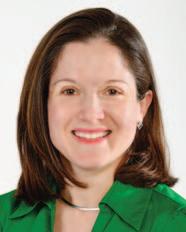
After nearly a decade in the making, the John O’Brien Nanofabrication Laboratory opened its doors to research scientists in the USC Michelson Center for Convergent Bioscience (MCCB) in 2021. As the only nanofabrication facility on the USC campus, it will serve the needs of about 40 different research groups in such biomedical disciplines as biology, chemistry, physics, and several fields in engineering.
The facility supports up to $95 million each year in research contracts and more than 100 student and postdoc researchers. “It’s truly a hub for innova tion at USC across different fields,” says Professor Andrea Armani, director of the Nanofabrication Lab and the Ray Irani Chair in Engineering and Material Sciences at the USC Viterbi School of Engineering.
The Nanofabrication Lab is an innovation hub for research projects ranging from basic science to applied technology, including lithography, characteri
Armani’s research focuses on integrated photonics and diagnostics for laser-based optics. “We actually make our integrated optical circuits in the nanofab facility. An integrated optical circuit is like an electrical circuit, except instead of moving electrons around, we use photons. By watching how the photons interact with proteins or tissue, we can detect or monitor disease progression.”
Another researcher who uses the Nanofabrica tion Lab is Dr. Ellis Meng, a biomedical engineering professor who works on implantable neural electrodes to try to understand how the brain works and how to treat diseases such as Parkinson’s or Alzheimer’s. Meng runs an NIH Resource Center that develops transducer platforms for researchers across the United States.
Quantum computing researchers will also use the nanofabrication facility. Assistant Professor of Physics and Astronomy Dr. Eli Levenson-Falk makes quantum computational chips based on studying magnetic spin particles. He will now fabricate those chips in the new nanofab facility.
2022 IMPACT REPORT14 MEDICAL RESEARCH
$95 million in research contracts are supported each year
In addition to the faculty researchers who will be using the facility, students from a number of different disciplines will have access to it as well. Armani said they are currently working on developing Nanofabri cation Lab Fellowships, similar to a model used at other nanofabrication facilities, which secures funding for students to use to pursue exploratory projects.
In April, NASA’s Jet Propulsion Laboratory donated a scanning electron microscope (SEM) to MCCB’s Nanofabrication Lab. The SEM allows scientists to “image an object around one nanometer thick in structure, which is similar to DNA,” according to Armani. “This magnification is not possible with a conventional optical microscope, which relies on photons. The higher-energy electrons allow smaller features to be resolved. But this specific microscope has a special capability. It can also determine what elements are present in a material, making it a very powerful and useful tool.”
Michelson Grant Supports Children’s Center Efforts in African Fishing Communities

A $25,000 grant from Michelson Philanthropies will help build systems to bring clean water and electricity to the fishing communities around Lake Victoria, which are among the most vulnerable and marginalized populations in Africa.
Innovations in Imaging
The state-of-the-art magnetic resonance imaging (MRI) machine that was recently installed in the USC Michelson Center for Convergent Bioscience (MCCB) allows researchers and students to produce better, faster, and less expensive images of the human body, thus improving the capability of diagnostic imaging to detect diseases.
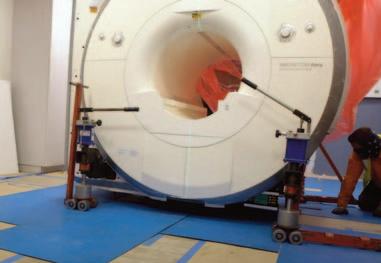
“Low-field MRI might have an even larger economic impact on society in the future,” explains Ben Paul of the USC Viterbi School of Engineering. “The weaker magnet used in low-field MRI means these machines could cost much less and be much smaller and easier to maintain. The machine’s home in Michelson Hall is appropriate, as it represents a true convergence of engineering and medicine.”
Residents live in conditions of extreme poverty with limited access to clean water, sanitation, healthcare, and education; they have some of the highest HIV rates recorded. Children born in fishing communities have limited educational opportunities and are at increased risk of alcoholism, unwanted pregnancies, and HIV.
The project is led by the Peace Island Children's Center (PICC), which works directly with these communi ties to provide clean water; expand education access for youth, including both primary and vocational schooling; and facilitate community medical and dental clinics and access to basic medicines.
With the support of Michelson Philanthropies and other donors, PICC has been able to plan and build two projects that are now providing clean water to over 5,000 people. With this additional support, PICC will expand its efforts for the people around Lake Victoria.
“Access to clean water is by far the greatest public health need in these remote fishing communities,” says Dr. Wayne Koff, who is leading the U.S.-based fund raising effort. Koff is president and CEO of the Human Vaccines Project, a partner of Michelson Medical Research Foundation.
A water purifier has transformed the lives of 5,300 Ugandan villagers on the banks of Lake Victoria.
2022 IMPACT REPORT 15 MICHELSON PHILANTHROPIES
The Michelson Philanthropies Matrix: M
Dr. Patricia Therese Illing of Monash University, recipient of the 2018 Michelson Prize for Human Immunology and Vaccine Research, published new research in Nature that finds Indigenous people worldwide are at high risk of developing severe influenza disease.
Dr. Peter Kuhn, professor of biological sciences at USC and a founding member of the USC Michelson Center for Convergent Bioscience, joined President Joe Biden and First Lady Jill Biden at the White House on February 2, 2022, for the relaunch of the Cancer Moonshot. “Your philanthropic support was a key part of why we got this far and how we will make progress going forward,” Kuhn wrote to Dr. Gary K. Michelson.
Michelson Philanthropies and Science, the peer-reviewed academic journal of the American Association for the Advancement of Science, have launched the Michelson Philanthropies & Science Prize for Immunology to honor young investigators doing transformative

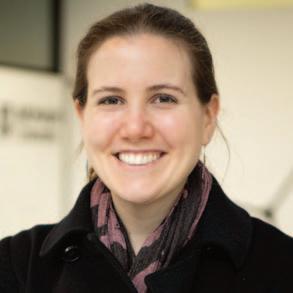
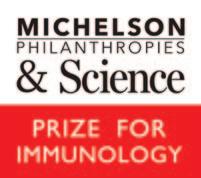
Having graduated its first class, the Michelson Institute for Pet Professions guarantees jobs for everyone who completes the program. MIPP creates equal access to pet care careers for students from lowincome neighborhoods, LGBTQIA+ students, the formerly incarcerated, and foster-care grads.
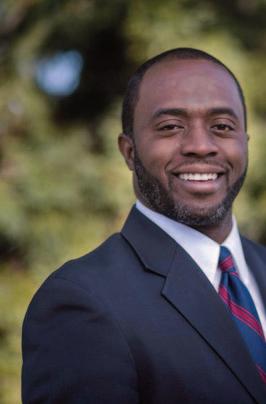
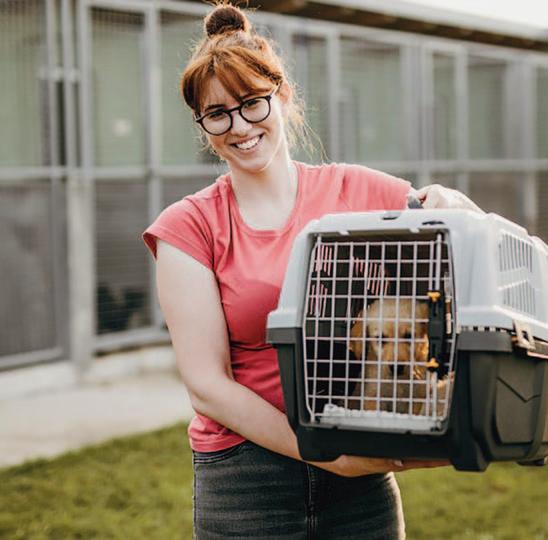
9,867 dogs and 499 cats were reunited with their families through the No Place Like Home Challenge, a partnership between MFA and Maddie’s Fund launched in March 2021 as part of the nationwide Return to Home program.

The Saving Pets Challenge raised nearly $1.2 million from over 7,000 donors for multiple nonprofits across the country. Some 120 participating organizations use Michelson Found Animals’ matching or catalytic grants to raise even more money at the local level.


2022 IMPACT REPORT16
Making an Impact in 2021 and Beyond

State Superintendent of Public Instruction Tony Thurmond announced the California Digital Divide Innovation Challenge with support from Michelson Philanthropies. The global competition will award up to $1 million to the most revolutionary proposals to eliminate the digital divide and expand high-speed internet access to all Californians.

A Spark Grant to California State University Channel Islands will advance CSUCI’s work to break down open educational resources learning silos across the state. Since 2016, CSUCI’s OpenCI initiative has benefited more than 44,000 enrollments, saved students more than $5 million, and introduced the first three Zero-Textbook-Cost undergraduate majors (“Z-majors”) in the California State University system.
GIBLIB Michelson 20MM portfolio company that provides a streaming service for medical professionals to learn from subject matter experts at top institutions, was cited by Time magazine as a “Special Mention” among the “Best Inventions of 2021.”
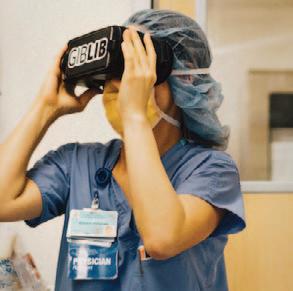
To be a purposeful, serial inventor, one must employ intelligence, hard work, perseverance, imagination, and courage, Dr. Gary K. Michelson told an online audience at the 2021 Latino Medical Students Association conference. If orthopedic surgery technology had been good when he entered the field, he added, “I might have never become an inventor.”
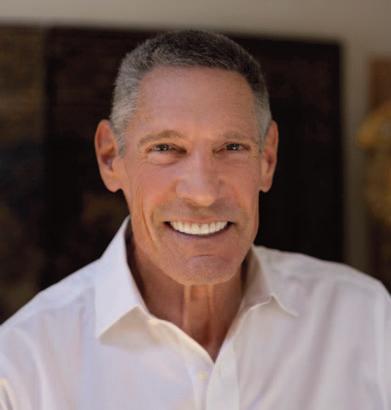
In 2021, Michelson IP launched a Resource Hub with free education materials, which has already seen more than 1,000 downloads. Among its offerings: the popular Basics of Intellectual Property video series.




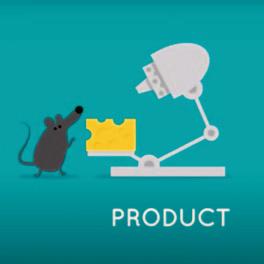
A bipartisan congressional group intro duced the Pets Belong With Families Act, which bans breed restrictions in public housing. The group cited 2021 Pet-Inclusive Housing Initiative research, co-funded by Michelson Philanthropies, which finds that the scarcity of petinclusive rental housing remains a barrier for pet owners.

A bipartisan group, including U.S. Senators Cory Booker (D-N.J.), right, and Rand Paul (R-Ky.), introduced the FDA Modernization Act to eliminate a Depression-era requirement for animal testing for all new drugdevelopment protocols and to enable the FDA to accept the most effective test methods.
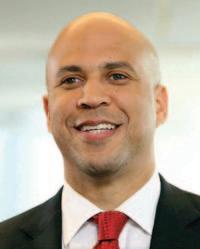
2022 IMPACT REPORT 17
Pets Belong With Families
Congressional bill cites research from Pet-Inclusive Housing Initiative

A bipartisan coalition led by Representatives Cori Bush (Missouri), Brian Fitzpatrick (Pennsylvania), Adam Schiff (California), and Lauren Underwood (Illinois) cited Michelson Found Animals Foundation’s Pet-Inclusive Housing Initiative (PIHI) report in November 2021 when introducing HR 5828 to Congress. The bill would allow families to keep their beloved pets in the home by prohibiting vague and sweeping restrictions against dogs based on breed or size.
“More than 25 million U.S. pet owners are renters, including public housing tenants,” the congressional leaders said in a statement. “A recent inclusive housing survey found that the vast majority of rental property owners and operators face restrictions on pets—rules that often include blanket bans on dog breeds that are considered ‘dangerous’ such as pit bulls and rottweilers, or dogs that simply resemble
these breeds, regardless of more than 20 years of data showing that calculating bite rates for specific breeds is virtually impossible.
“At their worst, such bans can exacerbate housing insecurity for low-income pet owners who understandably don’t want to part with their compa nions. More than 70 percent of residents in the 2021 [PIHI] survey reported that pet-friendly housing is difficult to find, and 59 percent reported pet-friendly housing as too expensive.”
If passed, the Pets Belong With Families Act would prohibit pet restrictions based exclusively on breed in public housing, while still allowing for discretion with regard to potentially dangerous individual animals. Dr. Gary K. Michelson, MFA founder and co-chair, called for similar legislation during Pet Week on Capitol Hill, hosted by the Human Animal Bond Research Institute.
“Now is precisely the right time to rethink the policies and procedures that have been mandated by
72 percent of renters say that pet-friendly housing is hard to find
2022 IMPACT REPORT18
ANIMAL WELFARE
government or imposed by businesses that interfere with a family’s ability to have a pet in rental housing,” Michelson said.
The bill is supported by the American Society for the Prevention of Cruelty to Animals, the Humane Society of the United States, Social Compassion in Legislation, and the Humane Society Legislative Fund.
“For millions of Americans, pets are cherished members of their families. But far too often, pet owners are forced to make impossible choices between their beloved companions and secure housing due to overly broad restrictions on dog breeds that don’t make communities safer,” Schiff said. “The Pets Belong With Families Act would remove these unfair barriers for residents of public housing because no one should have to forfeit an affordable and stable home to stay with the pet they love.”
Breed-specific restrictions have consistently proven to be an ineffective solution to enhancing public safety, Fitzpatrick noted. “Our bipartisan legislation will put an end to this unfair and inhumane practice and ensure that responsible pet owners are not forced into housing instability due to unnecessary breed bans,” he said.
Bush added that the bill will eliminate a barrier that Black and brown community members face when securing safe, stable housing. “Housing is a human right, period,” she said. “No family should be denied that right because of archaic rules barring certain pet breeds from public housing in this country. Our pets are often integral members of our families, and we can’t ask our neighbors to simply leave them behind.”
The vast majority of pet-owning residents and property owners and managers agree that pets are important members of the family, but progress is still needed when it comes to extending that sentiment to pet-inclusive policies for rental housing, according to a new datarich report from the Human Animal Bond Research Institute (HABRI) and Michelson Found Animals Foundation.
The recently published Pet-Inclusive Housing Initiative (PIHI) report highlights data from a comprehensive survey of residents and property owners/operators, offering a roadmap for positive, forward-thinking, and mutually beneficial changes to pet rental policies that will increase the availability of pet-inclusive housing and benefit every one—housing owners/operators, residents, and pets. Among the report’s key findings:
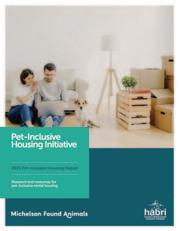
98 percent of residents with pets and 92 percent of all▪ residents consider pets to be important family members.
93 percent of property owner/operators agree pets are▪ important family members.
76 percent of property owner/operators identify their▪ properties as allowing some pets.
Residents in pet-friendly housing stay 21 percent longer▪ than those in non-pet-friendly housing. This translates to residents staying about 10 additional months.
To access the full report, visit petsandhousing.org.

REPORT: Rental housing owners can attract and retain more residents by adopting pet-inclusive policies
“Far too often pet owners are forced to choose between surrendering their beloved pet or securing safe and stable housing due to discriminatory breedspecific regulations.”
U.S. REP. BRIAN FITZPATRICK
2022 IMPACT REPORT 19 MICHELSON PHILANTHROPIES
Supporting Neighbors and Their Pets
MFA initiative brings food and services to communities in need
More than two years into COVID-19, families across Los Angeles continue to struggle financially. Food insecurity has more than doubled since 2019—and pet food insecurity is on the rise as well, especially in lower- and moderate-income communities.
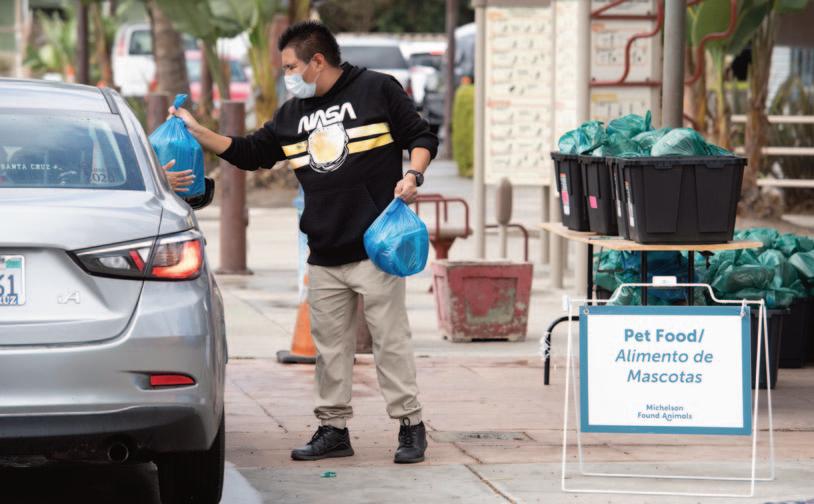
Since Better Neighbor Project's launch to tackle pet food insecurity in Southern California, it has become a signature program for Michelson Found Animals Foundation (MFA)—growing well beyond its initial mission to provide a host of animal services to communities in need.
In July 2021, MFA and YMCA of Metropolitan Los Angeles hosted a Pet Pantry and Wellness event to supply pet owners in the Boyle Heights area with pet food, veterinary services, on-site microchipping, and other resources.

At another free Pet Wellness Day in Watts, a total of 143 families were served, with 245 pets receiving hygiene and wellness services, more than 20 pets spayed or neutered, and enough food distributed to feed 400 pets.
“The economy has hurt many people,” says Assemblymember Miguel Santiago, who has co-hosted and attended several Pet Pantry and Wellness events since the BNP program began. “Pets are part of our families—that’s what’s helped everybody through the pandemic.”
At a Better Neighbor Project event in June 2021, Santiago presented a resolution commending Alya and Dr. Gary K. Michelson and Michelson Found Animals Foundation “for the outstanding contributions they have made to the State of California through their programs” with “extended best wishes for continued success in the future.”
ASSEMBLYMEMBER MIGUEL SANTIAGO
“Since we started this program, 50,000 pets and their families have been served through Pet Pantry and Wellness events,” says MFA CEO Brett Yates. As Better Neighbor Project approaches its third anniver sary, he adds, “We’re going to double down on serving even greater numbers in the coming year.”
Better Neighbor Project by the Numbers
50,000 pets have been served through Pet Pantry and Pet Wellness days
157,000 pounds of dry food have been provided to pet owners
13 neighborhoods served: Boyle Heights, Burbank, Chinatown, Crenshaw, Cudahy, Koreatown, Downtown L.A., Long Beach, Maywood, Paramount, South Gate, Watts, and Wilmington
“Events like this are critical during a pandemic. The need is absolutely out there.”
2022 IMPACT REPORT20 ANIMAL WELFARE
LEAP VENTURES INTO NEW TERRITORY
Leap Venture Studio recently graduated its fourth class of pet care startups. The eight startups—coming from four continents—were chosen for their unique products and services that are forging new trails in the $100 billion pet care industry.
With huge increases in the adoption of dogs and cats during the pandemic, the need for new and impactful pet care solutions is greater than ever. The fourth cohort represents the pet care trends of the future: artificial intelligence-enabled technology, vegan pet food and treats, holistic and nutritional wellness options, and pet-friendly travel.
Leap Venture Studio’s class of 2021 includes:
Oliver Pets (Mexico City and Buenos Aires, Argentina), an all-in-one service platform that makes pet parenting simpler and more fun.
Pebble Naturals (Moss Beach, Calif.), which helps shelters save money on drugs by connecting them directly to manufacturers.
Petaluma (Oakland, Calif.), a public benefit corporation that formulates sustainable dog nutrition with environmentally friendly and animal-free ingredients.
petNmind Naturals (Coconut Creek, Fla.), whose mission is to enhance the bond between pets and their humans by focusing on quality products, insightful education, simple pet-washing services, and local product delivery.
The Bark Shoppe (New York City), a premier pet care company that aims to standardize and certify pet
groomers with its flagship grooming school and online training platform.
The Pack (London), which is on a mission to cook up delicious, drool-inducing, plant-based meals for every dog bowl in the world.
Toletta Cats (Fujisawa, Japan), creator of a “smart” cat litter box capable of detecting early symptoms of common feline diseases, without the stress of a veterinarian visit.
Woof Together (Athens, Greece), which is setting the standard in pet-friendly hospitality by assessing, certifying, and training pet-friendly hospitality businesses.
The Leap Venture Studio culminated in an online pitch event to investors, industry leaders, and the startup community in May.
Leap Venture Studio’s 2021 cohort participated virtually due to the pandemic. In a positive twist, the travel restrictions imposed by COVID-19 allowed Leap to attract an even more diverse and international set of startup founders.

“Innovation in pet care is happening in every corner of the world,” says Asad Butt, former director of ventures and partnerships of Kinship, a division of Mars Petcare and MFA’s partner in Leap.
Pet Grooming Is Booming
With a goal of creating equal access to pet care careers in underserved communities, Michelson Institute of Pet Professions partners with training providers such as West Coast Grooming Academy, who have robust teaching programs to provide MIPP students with professional certifications.
“This program has impacted me in so many good ways. It's a completely new beginning for me and I can't wait to get full hands-on with all the dogs,” says Daisy D., who graduated as part of the first cohort in 2021.
“Over the last 10 years, the revenue for pet grooming has nearly doubled,” says Brett Yates, CEO of Michelson Found Animals. “It points to being able to have a great career in pet grooming. It’s a fantastic opportunity.”

2022 IMPACT REPORT 21 MICHELSON PHILANTHROPIES
California recently agreed to provide $115 million to the community college system for the Zero-TextbookCost (ZTC) Degree program. The ZTC program allows students to start and finish their degree programs without paying anything for costly textbooks and other instructional materials. A recent Spark Grant from the Michelson 20MM Foundation to the Institute for the Study of Knowledge Management in Education (ISKME), an independent education nonprofit, will be key to developing a roadmap for high-wage, highdemand ZTC degrees for Bay Area community colleges.
ISKME will conduct a study that identifies learning materials gaps where the absence of suitable open
educational resources (OER) prevents the 24 Bay Area community colleges from offering ZTC degrees that align to high-wage, high-demand careers in the region. Based on the data collected, a gap analysis and map of OER curricular needs will be developed that reflects regional workforce demand. The map will advance ISKME’s effort to facilitate cross-college working groups for the creation of ZTC degrees in Bay Area priority fields where students of color are underrepresented.
Inclusive Access Website Raises Consumer Awareness of the Costs of Automatic Textbook Billing
In recent years, hundreds of colleges have adopted a sales model known as “inclusive access,” which automatically adds the cost of digital textbooks into students’ tuition and fees. While this model is intended to address high textbook costs, how exactly does it work? Does it really save students money?

2022 IMPACT REPORT22
EDUCATION & EQUITY Spark Grantees Open Access for All Education nonprofits chart a new course for lowering textbook fees
PHILLIP KIM
Michelson 20MM CEO
Supported by a Spark Grant from Michelson 20MM, the Scholarly Publishing and Academic Resources Coalition (SPARC) launched Inclusi veAccess.org, a community-driven initiative to raise awareness of the facts about automatic textbook billing. The website provides informa tion, tools, and other resources to help adminis trators, faculty, students, and policymakers make informed decisions about inclusive access and its implications for the campus community. The website has had more than 14,000 visits to date.
These efforts build on a 2020 report from the United States Public Interest Research Group (U.S. PIRG), also funded by the Michelson 20MM Foundation, titled “Automatic Textbook Billing: An Offer Students Can’t Refuse?” which reviewed 52 contracts struck between textbook publishers and 31 institutions of higher learning, representing 700,000 students. The report reveals troubling clauses that are often contained within these contracts, which do not have the interest of the students or faculty in mind.
“InclusiveAccess.org is a key weapon in our ongoing battle to ensure that stakeholders are aware of the true details of automatic billing,” says Michelson 20MM CEO Phillip Kim
Forestry and Fire Recruitment Program Graduates Second Class
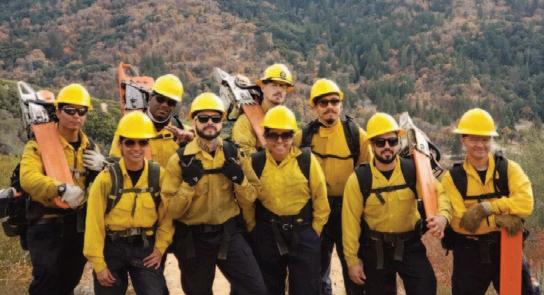
California experienced its worst fire season on record in 2020, with 9,639 wildfires and 4.2 million acres burned. That same year, over 3,600 incar cerated firefighters returned home. A critical factor in reentry success for those returning home from prison is securing stable employment.
Last year, Michelson 20MM awarded a Spark Grant to the Forestry and Fire Recruitment Program (FFRP) to further its work in building a self-sustainable, fee-for-service model that provides transitional employment and reentry support, while helping participants navigate the firefighting career maze.
On May 15, 2021, FFRP hosted its second graduation, honoring 35 graduates for completing the Wildland Fire Academy, a rigorous 10-month professional development program. Twenty-six graduates from the cohort have been hired at CAL FIRE, Pioneer Fire Department, U.S. Forest Service, EMT School, Ventura Training Center, and Union Career.
In November 2021, FFRP started its third cohort with 30 individuals. Looking ahead to November 2022, the program will launch its first Bay Area cohort (along with its fourth L.A. one), which Michelson 20MM supported with an additional Spark Grant awarded in late 2021.
Public Higher Education Systems Lay the Groundwork for OER
For the first time, all three systems of public higher education in California came together to provide a California-centric Open Educational Resources (OER) conference. The 2021 Cal OER Conference was held August 4-6 with nearly 1,000 open education leaders in attendance.
“The conference offered a unique opportunity to ensure that OER efforts across the state are working together and learning from each other,” says Phillip Kim, CEO of Michelson 20MM. “With a strong turnout in its first year, we are hopeful that the conference will continue to grow and establish itself as a key stage for the sharing of learnings and resources across all of California’s higher education systems.”
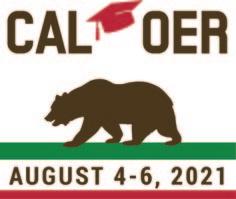
A $25,000 grant will further FFRP’s work in reentry support and transitional employment
“InclusiveAccess.org is a key weapon in our ongoing battle to ensure that stakeholders are aware of the true details of automatic billing.”
MICHELSON PHILANTHROPIES
2022 IMPACT REPORT 23
Open Educational Resources: A Textbook Study in Savings
In October 2021, members of the Michelson 20MM Foundation team shared data and strategies to enhance college affordability at the Association of Community College Trustees (ACCT) Leadership Congress in San Diego. More than 1,000 attendees gathered to discuss better ways to support students.
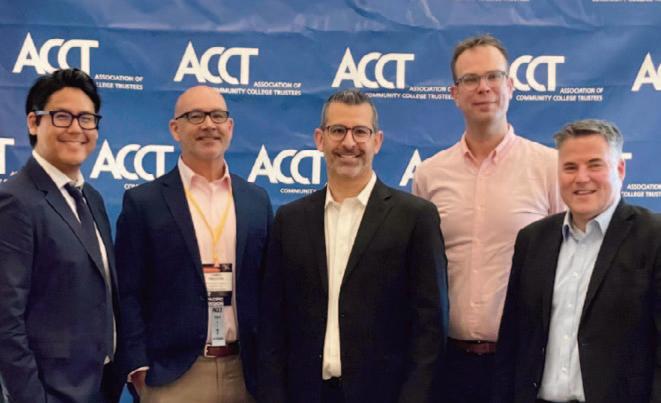
Michelson 20MM presented a look into West Hills College Lemoore’s textbook affordability initiative, which underscored the impact that open educational resources (OER) can play in leveling the playing field for post-secondary students.
In 2016, the West Hills College board adopted an auda cious initial policy of developing OER for “at a minimum, 80 percent of all degree-applicable programs in the first year.” West Hills’ “OERevolution” has resulted in $6 million in savings for students. The program has been so success ful that the campus bookstore was repurposed to house a career center and support services for military students.
“If we say we’re going to do something, then we’re going to get it done. No excuses,” West Hills Community College District board member Nina Oxborrow said in a panel discussion that included Geoffrey L. Baum, execu tive director of Michelson Philanthropies and Michelson Center for Public Policy and a former California Commu nity Colleges Board of Governors president.
“The ACCT Leadership Congress served as a space to better understand how trustees can support community college students in their educational journey,” Baum says. “We look forward to putting our research into practice.”
Cal State Long Beach Partnership Fosters Culture of Care for Parenting Students
Through a Michelson Spark Grant, 20MM is partnering with California State Univer sity Long Beach to further the impact of its Pregnant and Parenting Students Initiative. CSULB will conduct a landscape analysis of all CSU campuses and a select number of community colleges.
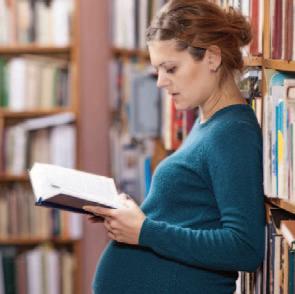
The analysis will create a baseline for the improvement of services for pregnant and parenting students across the CSU system and beyond. It will also help increase systemwide support by sharing best practices, lessons learned, and other findings that help support efforts to create inclusive programming and services. These efforts will result in the development of a best practices model for family-friendly campuses. When complete, this work has the potential to help transform all schools in the CSU system into family-friendly campuses.
More than one in five undergraduate students in the U.S. are parents or care givers of dependent children, according to the Institute for Women’s Policy Research and Ascend at the 2019 Aspen Ideas Festival. Generation Hope also reports that 75 percent of parenting students are unaware that their financial aid could be increased to account for childcare costs.
From left, Phillip Kim, James Preston, James Toscano, Ryan Erickson-Kulas, and Geoffrey L. Baum presented at the ACCT Leadership Congress in October 2021.
$6 million of savings for students at one college using OER
2022 IMPACT REPORT24 EDUCATION & EQUITY / SPARK GRANTS
BRIDGING THE DIGITAL DIVIDE
Michelson 20MM Spark Grant recipients recognized for their multidimensional approaches to issues of digital inequity
The five 2021 recipients of Michelson 20MM Spark Grants in Digital Equity range dramatically in size but they have a common mission. “Through the combina tion of scalable solutions, research, and education, five coordinated and complementary projects truly address every dimension of the digital divide. We are proud to partner with these groups to increase digital equity throughout the state of California,” says Phillip Kim, CEO of the Michelson 20MM Foundation.
“Access to the internet is essential for pursuing an education, finding a job, accessing healthcare, and participating in our democracy. COVID-19 highlighted the severity of the digital divide, particularly among underserved communities. We need to find solutions to this crisis that has been decades in the making,” adds Dr. Gary K. Michelson, founder and co-chair of the Michelson 20MM Foundation.
The projects awarded the $25,000 Spark Grants were recognized for their multidimensional approaches designed to address the complex challenges of digital inequity:
EveryoneOn is designing a digital inclusion training program for K-12 institutions, nonprofit organizations, and public housing providers. The national nonprofit was founded in 2012.
mohuman is launching a San Diego pilot program to connect 3,000 low-income residents, an effort it intends to scale across 22 “Promise Zones”—some of the most economically distressed communities in the United States.
Public Policy Institute of California (PPIC) is examining how digital equity gaps have evolved since spring 2020, which will culminate in a report designed to equip changemakers with more accurate data and actionable solutions.
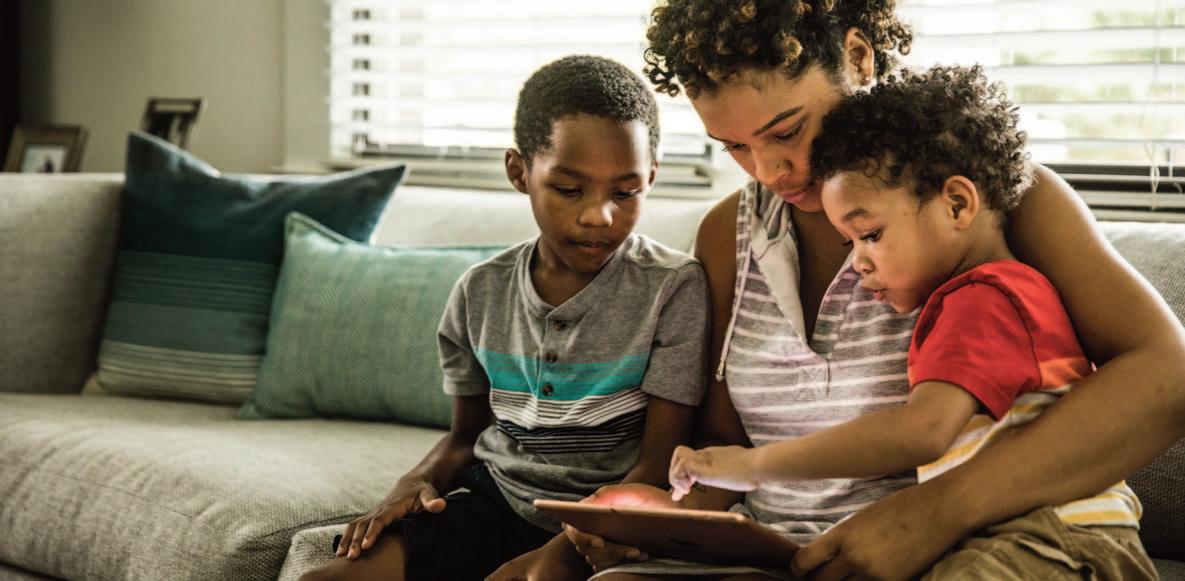
The LA-Digital Equity Action League (LA-DEAL), led by UNITE-LA in partnership with the Los Angeles County Economic Development Corporation, is a community-driven, cross-sector consortium that will address digital equity challenges by sector and region.
USC Annenberg will map connectivity down to the residential block via its Connected Communities and Inclusive Growth (CCIG) project. CCIG is expand ing the platform to cover the entire state of California, including digital literacy and broadband speed indicators.
2022 IMPACT REPORT 25 MICHELSON PHILANTHROPIES
Over 1 in 4 low-income households in California are un- or under-connected
Catalyzing Change at Scale
Michelson Impact Ventures deploys impact investment capital into early-stage, purpose-driven, for-profit startups
Michelson Philanthropies made its milestone 50th program-related investment in 2022. Companies include 22 startups across the educational technology, medical education, financial inclusion, and future work sectors, and another 28 in the human-animal bond, vet tech, sustainability, and future-of-food categories.
Its latest investment is in New Apprenticeship, a San Antonio, Texas-based company that focuses on bringing underrepresented minorities into tech careers by providing earn-as-you-learn pathways for students. In 2021, New Apprenticeship completed a $2.5 million seed round that will allow the company to build out its management team while also making significant investments in sales operations and technology to efficiently scale and serve the growing number of tech employers and their surrounding communities.
“There is a broad range in our portfolio,” says Michelson Impact Ventures managing director Phillip Kim, “but our north star is about moving us more quickly toward a world that is a bit more compassionate, inclusive, and fair.”
A number of companies in the portfolio have made considerable progress over the last year.
Shameless Pets saw an opportunity in the 63 million tons of food that was being thrown out in the United States each year, and sought a way to rescue unused ingredients and upcycle them into functional animal treats. In the two years since it graduated from the accelerator, it has secured distribution across thousands of Whole Foods, Wegmans, Target, and Costco locations that upcycled more than 500,000 pounds of food and counting.
Wild Earth is another darling of the portfolio. The company’s founders recognized that meat in kibble is responsible for up to a third of the environ mental impact of meat consumption in the United States, so they engineered a proprietary koji-based protein creation process that produces a natural, clean, and extremely efficient protein.
In less than two years in the marketplace, Wild Earth has replaced 10 million companion animal meals. That’s the equivalent of saving the lives of 1 million farmed chickens. About 80 percent of users
Shameless Pets upcycles human food waste to make environmentally friendly and healthy pet treats.

report that their dogs are actually exhibiting health improvements.
One of the foundation’s earli est investments on the education side was Mainstay, which uses behavioral intelligence to send students timely reminders, personalized messages, and empathetic check-in messages that have been shown to improve student outcomes, curbing enroll ment decline by between 20 and 30 percent. Since Michelson invested in the company four years ago, Mainstay has become the country’s No. 1 AI chatbot. It has served more than 5 million students and recently closed another $14 million in venture funding.
Edquity is central to Michelson 20MM’s program matic work. It’s a platform that has completely transformed the face of emergency aid deployment.
“For many students, an unforeseen $300 expense can often mean the difference between dropping out or ditching the semester,” Kim says. “Before Edquity, those aid systems were biased, underutilized, and horribly sluggish, often taking weeks. Those applica tions are now completed on average in about seven minutes, with results and decisions being turned around in 24 hours.”
64 percent of Michelson’s portfolio companies have diverse ownership
2022 IMPACT REPORT26
MICHELSON PHILANTHROPIES / IMPACT INVESTMENTS
Edquity has been successful in deploying more than $30 million in aid, he adds, and just a year out from Michelson’s first investment in the company, Edquity is looking at a $3 million Series A round from traditional VCs. “This is a great example of how our involvement in a company like this can reshape the way that we talk about and legislators talk about the mechanics of emergency aid distribution,” Kim says.
More than half of the 11 companies Michelson Philanthropies added to its portfolio are led by a diverse founder. Currently, 64 percent of Michelson’s portfolio has diverse ownership, a rate four times the average of the broader market.
“I've been around startups and startup founders my entire career,” says Brett Yates, chief financial officer and chief operating officer of Michelson Philanthropies. “As an accelerator program in the pet care space, when you compare our portfolio to others, it really blows you away how many founders we have been able to find who are women or people of color. It's finally starting to represent what America is, and it's great that we can continue that process.”
In September 2021, Michelson Impact Ventures announced a new partnership with Coalition Venture Studio, which addresses the VC funding gap in which
Mainstay (formerly known as AdmitHub) created a chatbot platform to boost student enrollment and graduation rates.
PHILLIP KIM
Michelson Impact Ventures Managing Director
less than 1 percent of total venture capital goes to Black founders. The Coalition platform will give companies the opportunity to integrate into larger corporations via mentorship, private pilot programs, and indirect investment.
“We see immediate value to the founders of color currently in our portfolio, but you will see much more to come from the ecosystem that we’re nurturing on this front,” Kim says, pointing to Dr. Michelson’s new IP education initiative with seven Historically Black Colleges and Universities (page 30)
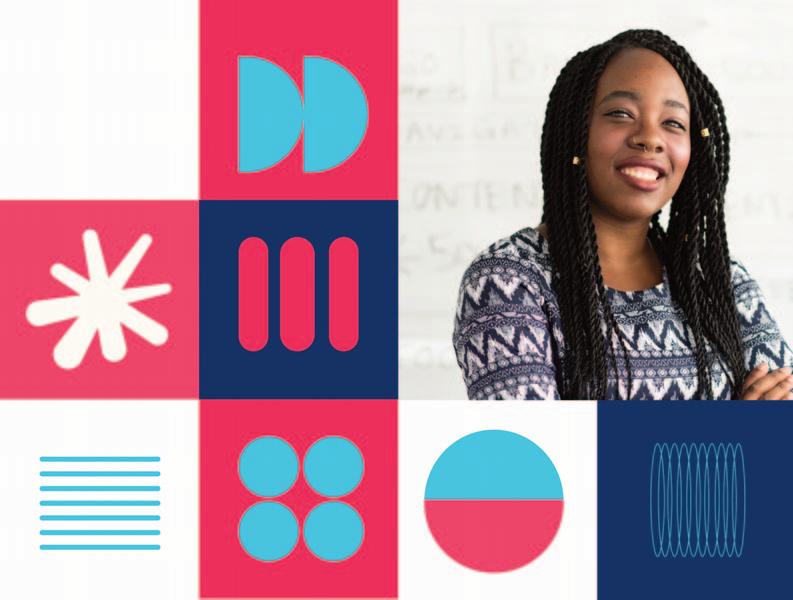
“There is a broad range in our portfolio, but our north star is about moving us more quickly toward a world that is a bit more compassionate, inclusive, and fair.”
2022 IMPACT REPORT 27 MICHELSON PHILANTHROPIES
Sharing a BEAUTIFUL JOURNEY
There are more than 12 million immigrant women in the U.S. workforce, and many of them are not working to their full potential because of the unique barriers they face.
Offering support to these first-generation immigrant American women on their often difficult journey inspired Alya Michelson to establish the FirstGen Initiative. “In supporting the professional transitions of immigrant women, we support each of our commu nities, businesses, and industries,” Michelson says.
That mission led to a partnership with Upwardly Global, which is leading people to restart their professional careers in the United States. “We are thrilled to embark on a new partner ship with Alya Michelson, who is dedicated to ensuring immigrant and refugee women have equal opportunity,” says Jina KrauseVilmar, president and CEO of Upwardly Global. “Through this partnership we are providing our services to a cohort of women and ensuring they are able to fully contribute their talent to the L.A. workforce.”
A grant from the FirstGen Initiative is underwriting a new class of Upwardly Global’s Career Skills Program for immigrant women in and around Los Angeles who have degrees and professional work experience from their home countries yet are underemployed. “I am proud to partner with Upwardly Global to launch their first-ever all-female cohort in Southern California, helping immigrant and refugee women find professional success in the country they now call home,” Michelson says. “There is no better place to pilot this than Los Angeles, a city that thrives on the contributions of immigrants.”
To date, 28 women have participated in the program, which includes one-on-one advising from an experienced career coach, online courses to improve U.S. workplace skills, training and certification opportunities in high-demand fields, and connections to top employers, industry experts, and like-minded professionals.

As one of the few female reporters on the national security beat in Russia, Michelson experienced firsthand the discrimination women too often face in the workplace. “My colleagues from other media outlets were middle-aged men with beer bellies and ambitions who called themselves ‘legends’ and basically spent the time bullying me around,” Michelson recalled during an interview for the Representation Project’s Power Hour podcast. “I was told so many times that it would be better for me to focus on starting a family and to stop feeding my ambitions.
“Instead of participating in their drinking parties, I was writing stories, asking questions, and working very hard to cultivate my own sources,” she added. “Newsmakers started opening up to me because they trusted me more.”
Michelson, who attended Moscow State University and reported on a number of major stories in the early 2000s, was among a handful of women who were the first to break a Sovietera tradition among MSU Journalism Department faculty that only male reporters could be sent abroad, though the women were still held to a higher standard in order to be accepted.
JINA KRAUSE-VILMAR President and CEO of Upwardly Global
But there were some things Michelson couldn’t leave behind. “Stereotypes are very dangerous,” she says. “The stereotypes about Russian women have no basis in reality. And women in many countries experience bias on the job—gender stereotypes still exist in journalism and many other professions. I hope that my daughters will experience less of it here in the United States.”

“Immigrant women bring immense talent and experience to the U.S. workforce.”
Alya Michelson’s FirstGen Initiative gives immigrant women a platform
2022 IMPACT REPORT28
MICHELSON PHILANTHROPIES / FIRSTGEN INITIATIVE
Michelson’s experiences led to the creation of the FirstGen Initiative. “I have always believed in storytelling because it helps connect you to an issue on a personal level,” she says. “The immigration issue has been heavily politicized. Many media outlets frame immigration in negative terms, such as pain, death, and loss. As I see it, the bigger immigration narrative is one of bravery, resilience, and love—but few people talk about it in these terms. I felt I could fill this niche as a storyteller, an artist, and a journalist, and that’s how FirstGen was born.”
Since moving to the United States more than a decade ago, Michelson has spread her wings into new pursuits: philanthropist and singer-songwriter. Building on the success of her 2019 release, “American Beauty,” her latest single, “Pleasure Is Mine”— a symphonic expression of female empowerment—has garnered more than 500,000 views on YouTube and is her most-streamed song to date on Spotify and Apple Music.
Music “gave me a voice when I was shy to speak, and I was very shy of who I was,” she says. Coming to America, “I was prejudged and often misunderstood because of cultural differences. And that inspired me and directed my path as a musician. These days I purposely try to use cultural allegories and archetypes to complete this story about myself, about being a Russian-Ameri can woman, about my Slavic heritage.
“Sometimes I look back at the route I took and can’t believe it all happened.”
Alya Michelson's most recent music release, “Pleasure Is Mine,” draws its inspiration from Russian culture, “which I hope will help broaden people’s preconceptions about my homeland and break down tired stereotypes,” she said on the Representation Project’s Power Hour podcast.
From Fairy Tales to Success Stories: FirstGen Initiatives
Big things are in the works this year for Alya Michelson’s FirstGen Initiative, which aims to advance the powerful narrative of immigrant women by elevating their stories and celebrating the sacrifice, contribution, and courage it takes to embark on their journey to a new home.
In 2022, the initiative will: produce episodes of the Beautiful Journey
podcast, which explores the stories of successful immigrant women; develop a docu-series about the “Lost
Generation” of Russian journalists who came of age in the early 2000s; create books and other media sharing classic
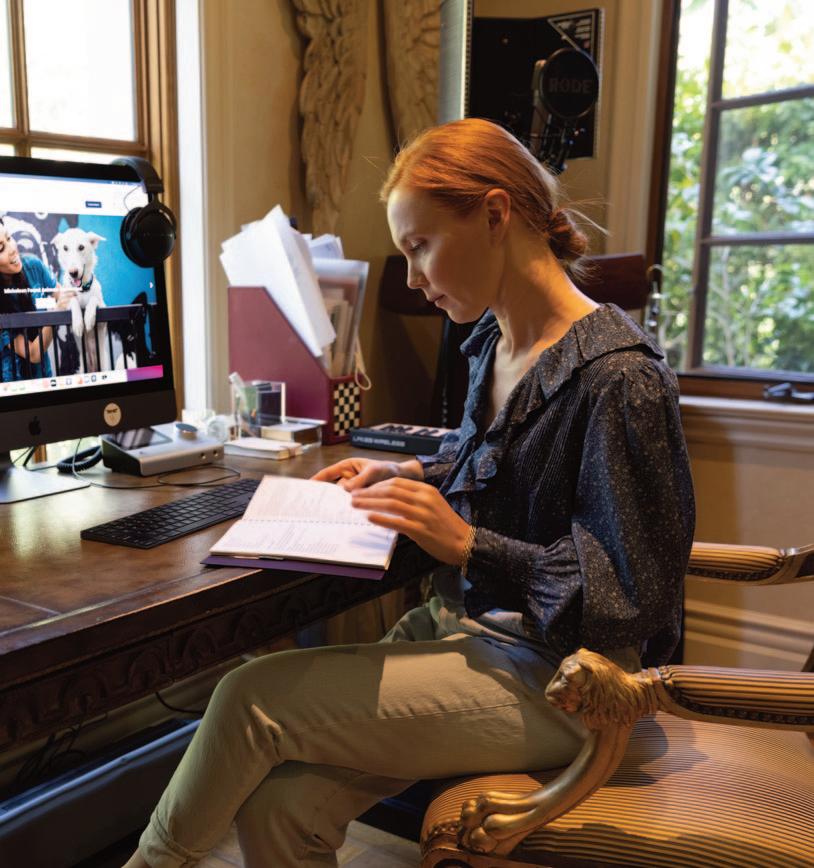
Slavic fairytales with strong women leaders; strengthen the FirstGen advisory board with
individuals, nonprofits, and other organizations that uplift immigrant women’s voices; provide direct support to immigrant women
through grantmaking initiatives; conduct empirical research studies on
portrayals of immigrant women in popular media and surveys of immigrant women; produce themed content that generates
conversation and expands the immigrant community by inspiring first-generation women entering the United States.
2022 IMPACT REPORT 29 MICHELSON PHILANTHROPIES
▪
▪
▪
▪
▪
▪
▪
Equitable Access for Innovators
creators, innovators, and entrepreneurs. The HBCU IP Futures Collaborative will connect leading faculty at HBCUs to foster best practices for teaching IP to nonlaw students. In support of this program, Michelson IP is providing digital curricula, resources, and $25,000 grants to participating institutions.
The HBCU IP Futures Collaborative aims to help students and institutions derive more value from their intellectual assets and innovations. The initiative establishes an educator community of practice that will be equipped to share the importance of IP rights and strategy across disciplines including business, entrepreneurship, STEM, and creative fields.
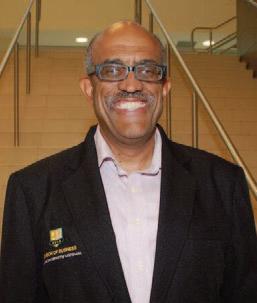
The inaugural program includes Bethune Cookman University, Hampton University, Morehouse College, Norfolk State University, South Carolina State University, Tuskegee University, and Xavier University of Louisiana. Emory University School of Law Profes sor Nicole Morris is the program’s principal adviser.
Founded in 1868, Virginia’s Hampton University is one of seven HBCUs participating in the MIPP-sponsored HBCU IP Futures Collective.
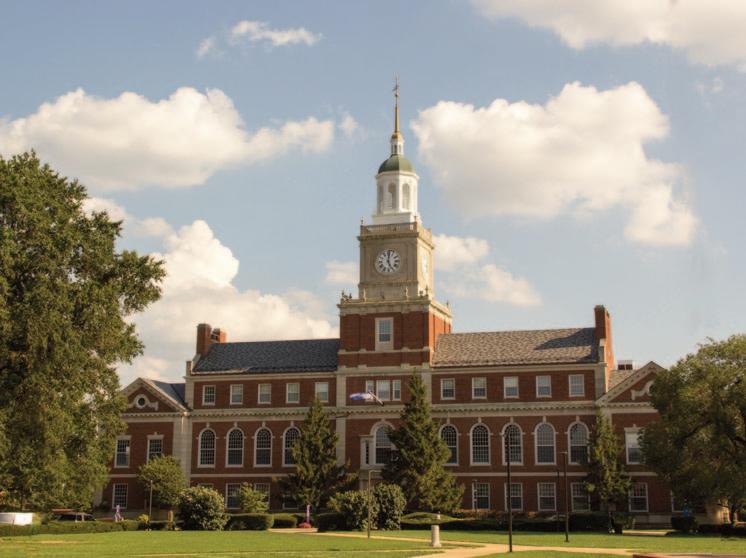
Intellectual property—including patents, copyrights, and trademarks—is fundamental to today’s economy. Yet research from the U.S. Patent and Trademark Office documents overwhelming, systemic barriers facing underrepresented inventors.
Michelson Institute for Intellectual Property is partnering with several Historically Black Colleges and Universities (HBCUs) to bring intellectual property (IP) education to a new generation of
“We’re excited to take part in this timely collabo ration that will increase student interest in innovation,” says Mark L. Quinn, Conrad N. Hilton Endowed Chair in Entrepreneurship at Xavier. “My colleagues work with students looking for information on how IP affects them, and this initiative responds to their needs.”
“Our nation’s HBCUs are a wellspring of creativity and ingenuity,” says Dr. Gary K. Michelson, founder and co-chair of the Michelson 20MM Foundation. “The Collaborative will further uplift these students in identifying and securing their valuable IP for the benefit of generations to come.”
HBCU IP Futures Collaborative brings best practices to non-law students
“My colleagues work with students looking for information on how intellectual property affects them, and this initiative responds to their needs.”
MARK L. QUINN
Conrad N. Hilton Endowed Chair in Entrepreneurship at Xavier
2022 IMPACT REPORT30
INTELLECTUAL PROPERTY
OpenStax Adds Introduction to Intellectual Property to Its Free Digital Library
Introduction to Intellectual Property is now available through OpenStax, the leading publisher of free, open educational resource (OER) textbooks. As a part of the Rice University-based publisher’s business catalog, the digital textbook provides value and support to undergraduate busi ness, entrepreneurship, and STEM educa tion—at no cost to faculty or students.
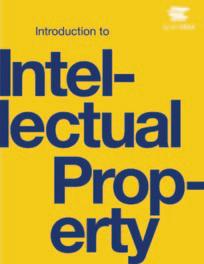
“Today’s students are inspired to pursue their ideas for innovations, and understanding intellectual property will be a tremendous asset for them,” says Professor Sal Veas, Santa Monica College business department chair. “As an open educational resource, Introduction to Intellectual Property is freely accessible to all students, regardless of economic status.”
The textbook, originally published as The Intangible Advantage: Understanding
Intellectual Property in the New Economy by Michelson Institute for Intellectual Property, addresses fundamental intellec tual property subject matter, including patents, trademarks, copyright, and trade secrets. It was written by intellectual property expert David Kline and edited by David Kappos, former director of the U.S. Patent and Trademark Office.
IP now accounts for more than 90 percent of the market value of publicly traded companies and represents 38 percent of total U.S. gross domestic product, according to Kappos.
“IP drives corporate value and serves as the foundation for startups and entre preneurial ventures, but it has traditionally been absent from undergraduate educa tion,” Kappos says. “We hope that making this topic more accessible will ultimately strengthen our economy.”
Animated Online Course on Intellectual Property Surpasses 20,000 Students
It would take forethought, collaboration, and passion to launch a first-of-its-kind course, Intellectual Property: Inventors, Entrepreneurs, Creators. “We were fortunate to work with IP thought leaders, writers, digital artists, and a great production team,” says Mayra Lombera, chief operating officer of the Michelson 20MM Foundation. “It was our job to condense 200-plus pages of our pioneering IP textbook The Intangible Advantage into an engaging, free resource that could be completed by learners on the go.”
It all started with an idea: Create a “course in a box” to teach budding inventors and creators about the fundamentals of intellectual property. Inspired by advancements being made at the leading edge of educational technology, Dr. Gary K. Michelson envisioned a scalable way to explain the complex topic of IP to a non-legal audience.
So how did the Michelson Institute for Intellectual Property team distill a dense subject matter into three hours of animated video lectures—reaching 20,000 students worldwide less than five years after its launch?

With vibrant visuals and intentional organization of IP topics across 38 short modules covering patents, copyright, trademarks, and trade secrets, the course rolled out on the Udemy platform in February 2017 to an encouraging response. In July 2020, course participants in Michelson IP’s first Udemy Learner Writing Contest shared their stories of how their newly developed IP awareness has helped them in their own pursuits.
The course shows no signs of slowing down. “Receiving these kinds of success stories from our audience and users has been a game changer in terms of how we measure the true impact of our work,” says Michelson 20MM CEO Phillip Kim.
90 percent of the market value of public companies is intellectual property
2022 IMPACT REPORT 31 MICHELSON PHILANTHROPIES
Looking Ahead
Changing the Face of Pet Care Building on its launch in 2021, the Michelson Institute for Pet Professions looks to change the face of the pet care industry, which includes veterina rians, vet techs, dog trainers, dog groomers, and more. MIPP plans to graduate between 75 and 100 people in 2022.
“We knew that the animal welfare industry was underrepresented in terms of diversity,” says Brett Yates, CEO of Michelson Found Animals Foundation. “MIPP is exactly an effort to address that. So we’re targeting low-income neighborhoods, LGBTQIA+ students, and formerly incarcer ated students, and we’re trying to fill this program with people who fit those needs.”
A Bigger Better Neighbor Project
Launching just before the coronavirus pandemic, Better Neighbor Project—which provides pet food and health care services to those who otherwise might not be able to afford them—exceeded Michelson Found Animals’ goals in 2021 and bigger things are in store for 2022.
The program’s impact has reached the point where community leaders throughout Los Angeles County are asking Better Neighbor Project to provide needed services and pet food pantries in their neigh borhoods. “We’re going to double down on serving even more families in
the coming year,” says Victoria Piar, program manager of Better Neighbor Project. “The community needs this service, and it is our privilege to help keep these families together,” adds Yates.
Pets Belong With Families: Act II
Following the introduction of the Pets Belong With Families Act, which cites the Pet-Inclusive Housing Initiative’s research, in Congress, the Michelson Center for Public Policy is working actively with Reps. Adam Schiff and Cori Bush, left, and a bipartisan coalition to advance that legislation in 2022.
Leap Ventures Abroad
The ongoing success of Leap Venture Studio—in coordination with Mars Petcare and R/GA Ventures— has prompted the creation of a second accelerator program in Europe, scheduled to launch in fall 2022. Today, Leap’s portfolio is more than 30 percent inter national, and Leap will be accepting another cohort of six to eight companies with mentorship and support focused on the EU market.
The European cohort of Leap will handle all Asian and European countries as well as the rest of the world outside of North and South America.
The Elite Eight: Howard University to Join HBCU IP Futures Collaborative
Michelson 20MM launched the Historically Black Colleges and Universities IP Futures Collaborative to increase intellectual property education. Howard University, founded in 1867 in Washington, D.C., and one of the nation’s premier HBCUs, is in the process of becoming the eighth member of the cohort.
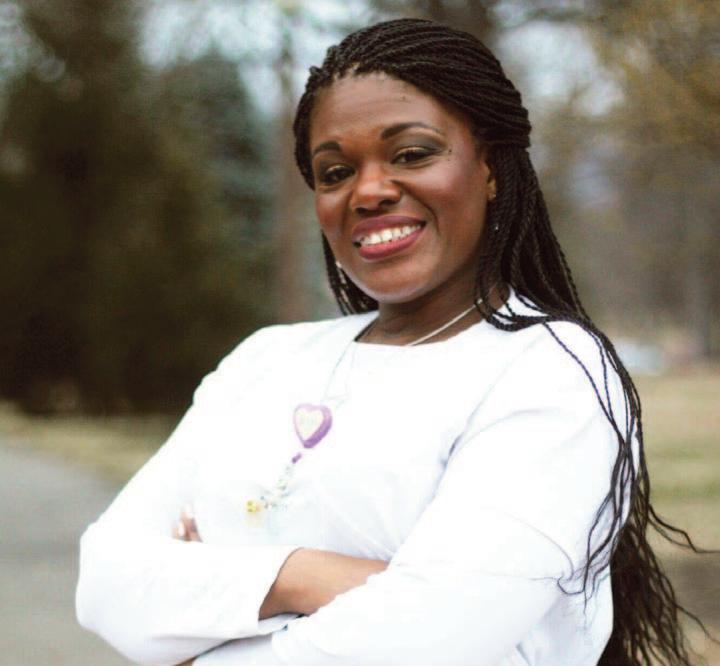
“We are now well into our first cohort, and there has just been amazing validation from the students, administrators, and faculty on campus about the kind of appetite for this type of education,” says Phillip Kim, CEO of Michelson 20MM. “It has only encour aged us to go further for the second cohort. Everyone will be hearing much, much more about this in 2022.”
Research Continues on Nonsurgical Sterilant Dr. Patricia Donahoe and Dr. David Pepin are continuing their work toward a permanent, singledose, nonsurgical sterilant for cats and dogs at the Pediatric Surgical Research Laboratories of the Massachusetts General Hospital. Their research is funded by the Michelson Prize & Grants in Repro ductive Biology, a program launched in 2008, and is expected to be published in 2022.
“Our pets are often integral members of our families, and we can’t ask our neighbors to simply leave them behind.”
REP. CORI BUSH (MISSOURI)
2022 IMPACT REPORT32 MICHELSON PHILANTHROPIES
Michelson in the News
Technology & Innovation Journal: Accelerating the Pace of Innovation for the Greater Good, by DR. GARY K. MICHELSON
L.A. Watts Times: Unapologeti cally Fighting for Black Student Success: Removing Educational Barriers, Especially High Textbook Costs
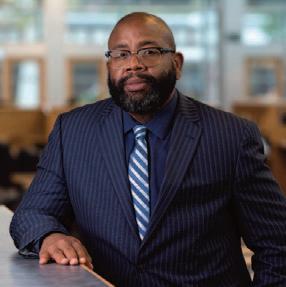
“The exorbitantly high cost of text books adds to the financial obliga tions of attending college,” wrote Dr. Keith Curry, above, president and CEO of Compton College. “For the last decade, the Michelson 20MM Foundation has advocated for the adoption of open educa tional resources (OER) as a way to dramatically improve access and equity in higher education by offering materials freely and legally through open licensing for instruc tors and students to use, adapt, share, and reuse.” (July 22, 2021)
“The collaborative problem solving and disruptive thinking demonstrated in the race to a COVID-19 vaccine has ushered in a new era of openness that has sped up global efforts. This race serves as proof-of-concept for an accelerated R&D framework. Es tablishing a ‘National Institute of Cures’ could help cement this disruptive drug development process as permanent policy.” (December 15, 2021)
USA Today: Microchipping your pets doesn’t have to be expensive. Paying for registration is a scam, by DR. GARY K. MICHELSON

“The use of microchips significantly increases the chance that a lost pet will be returned to its family, reducing euthanasia of unclaimed pets.” (November 17, 2021)
L.A. Business Journal: L.A. Startups Take Advantage of Booming Pet Care Industry
Forbes: How Billionaire Inventor Dr. Gary Michelson Negotiates Licensing Deals
“What motivates the world’s greatest inventors? How do they commercialize their groundbreak ing technologies? There is so much to learn from geniuses like Dr. Gary Michelson, one of the most prolific inventors in the history of medicine.” (April 23, 2021)
Thrive Global: Let Them Be Heard: Telling the Stories of America’s Immigrant Women, by ALYA MICHELSON
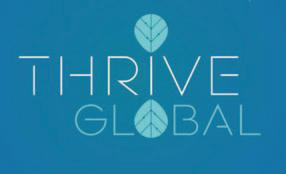
“Even in a country as historically welcoming as the United States, immigrant women continue to face obstacles. We see this anew in the cases of violence and hate crimes against women of different back grounds. We see it in the media, where stereotypes still prevail over touching personal stories: People are hated for not who they are but for what others want them to be, because storytellers believe viewers need villains. … As an adopted American, however, I be lieve that our country’s best future is one that celebrates and supports immigrants, especially women— artists, entrepreneurs, innovators, and trailblazers.” (May 27, 2021)
“The popularity of pet care start ups even led to the creation of Leap Venture Studio. The Mid-Citybased accelerator—founded by Michelson Found Animals Founda tion, pet technology company Kinship, and investment firm R/GA Ventures—has funded more than 25 startups since launching in 2018.” (May 24, 2021)
Fortune: To Vaccinate Our Economy, Boost Support for the NIH, by DR. GARY K. MICHELSON

“Following the record-shattering success of the COVID-19 vaccine development program, and with an administration that is strongly supportive of research, we are at an inflection point. Now is pre cisely the time to be bold and go big. It is time for the NIH to invest in what has been off-limits: highrisk, high-return research with the highest potential for scientific breakthroughs.” (June 13, 2021)
For more stories, please visit michelsonphilanthropies.org/news
11755 WILSHIRE BLVD. #1400 LOS ANGELES, CA 90025 MICHELSONPHILANTHROPIES.ORG
